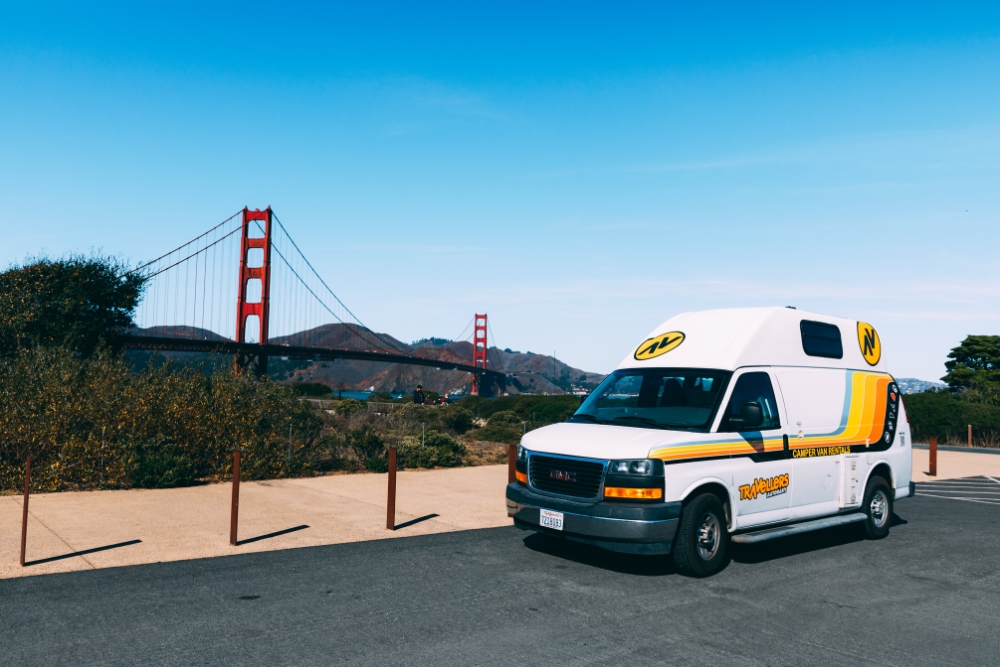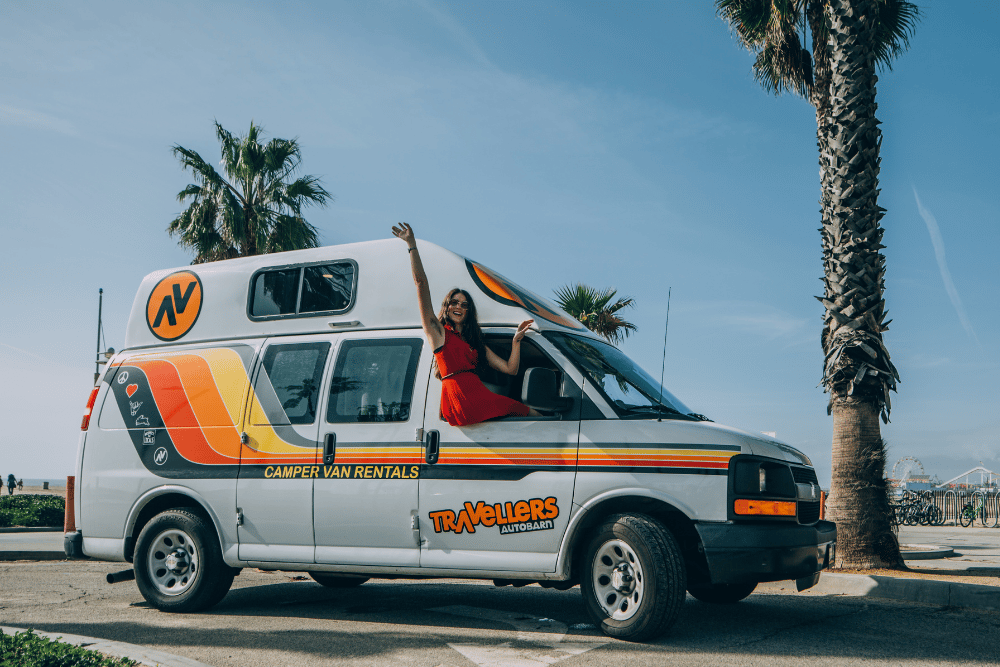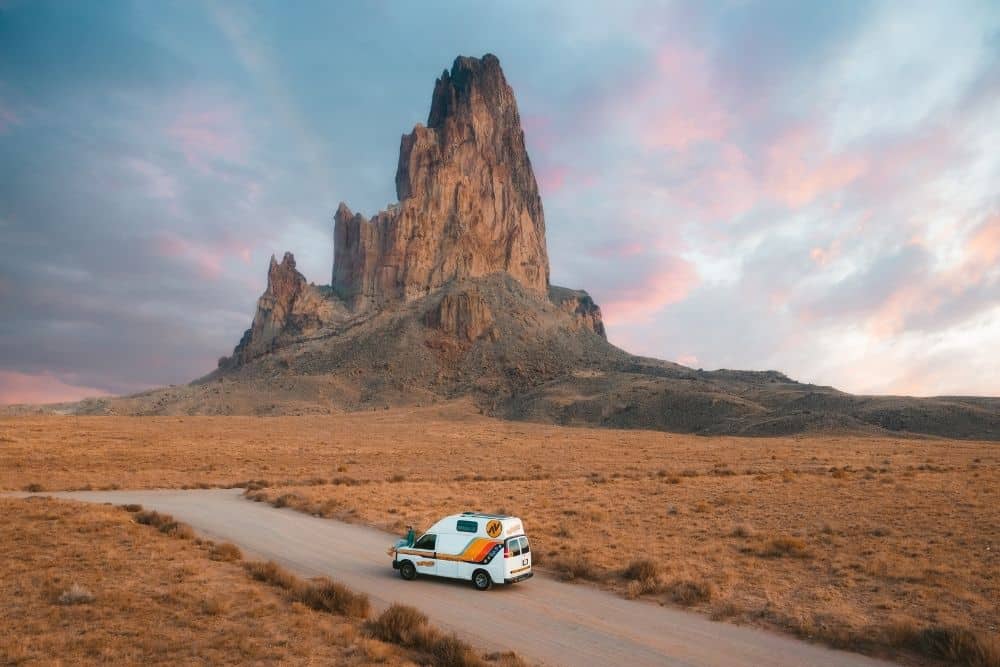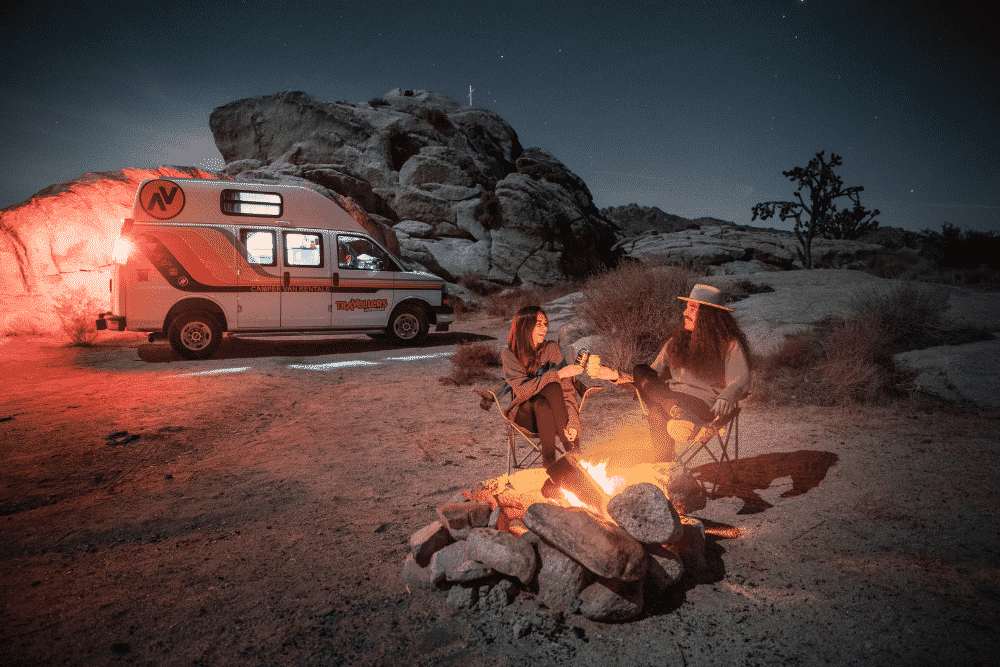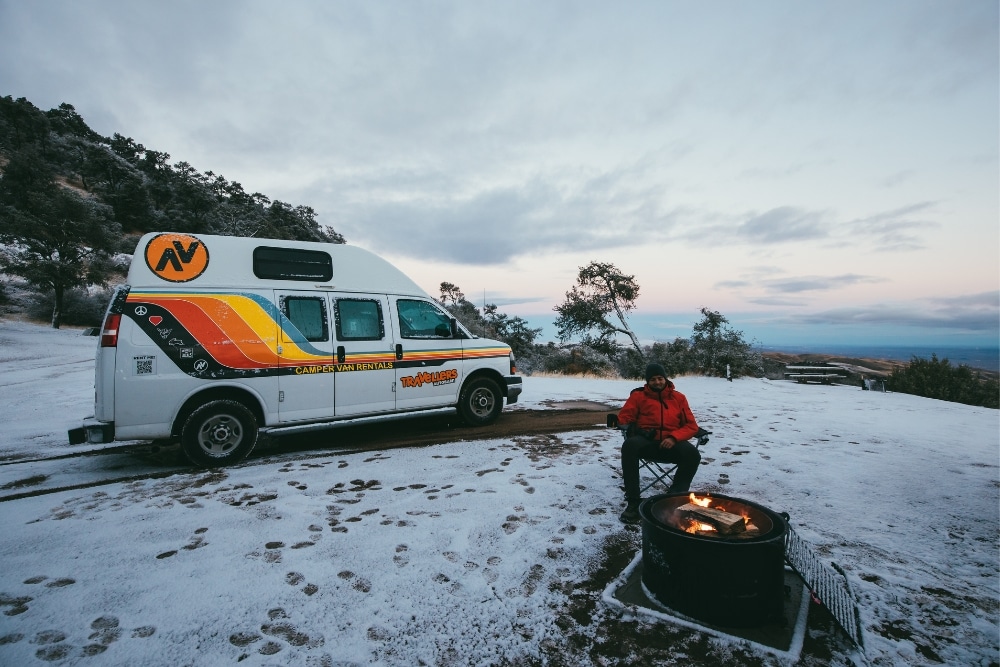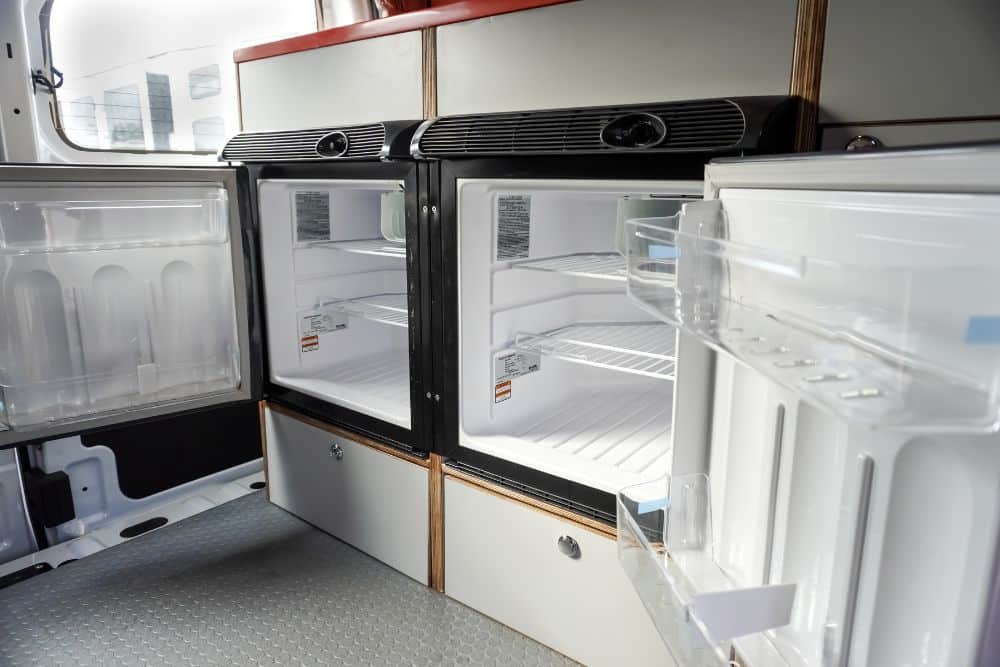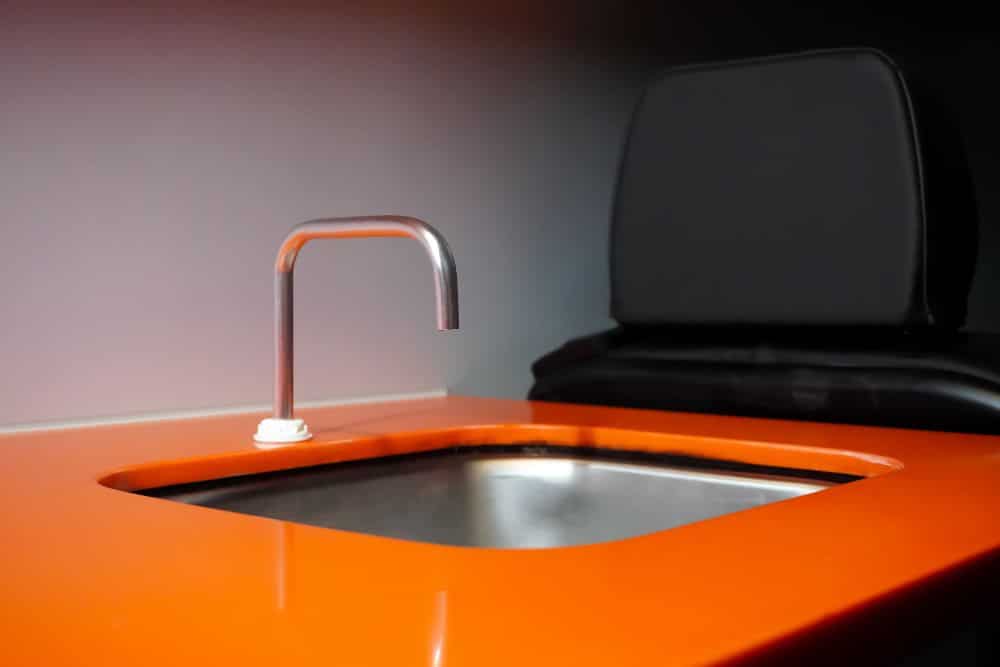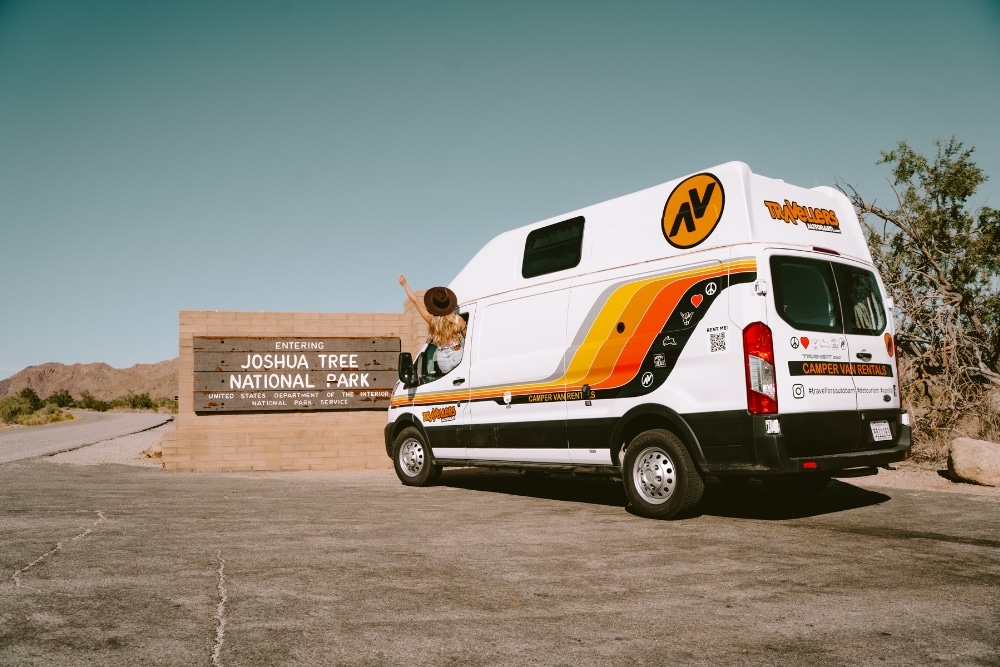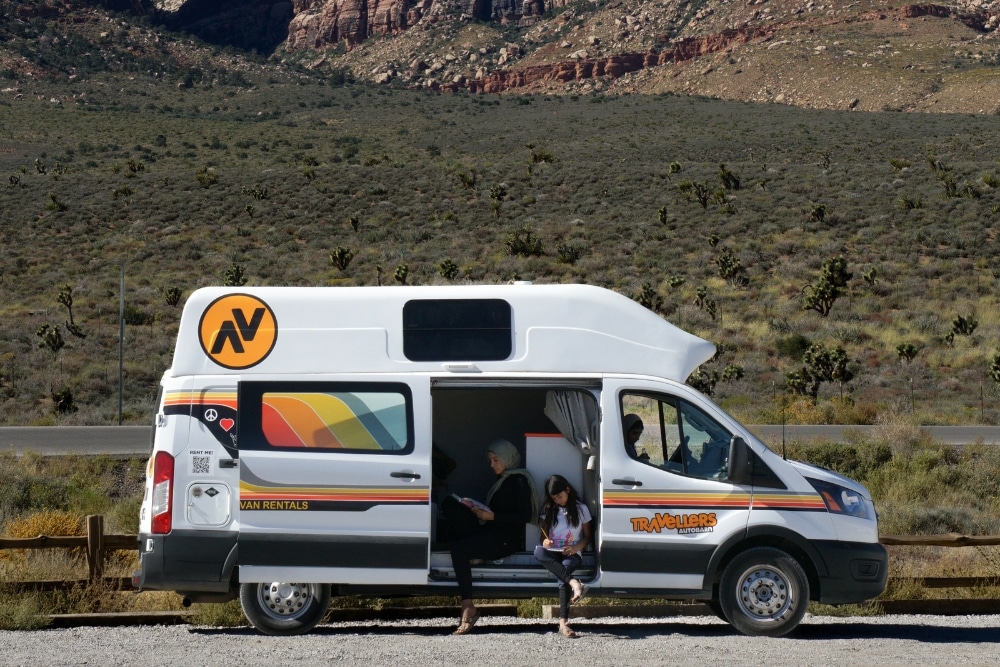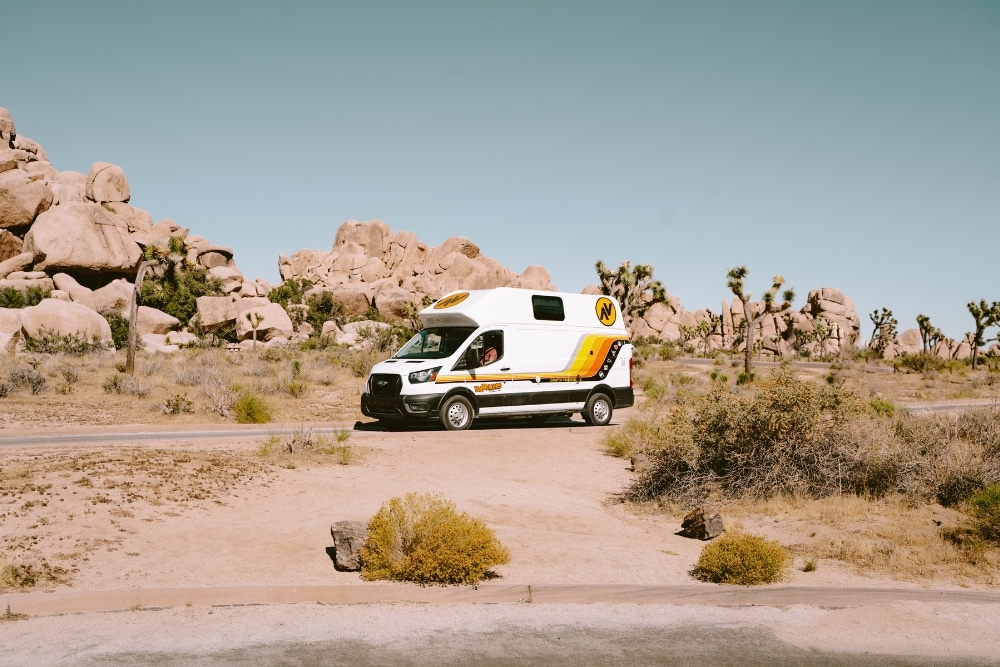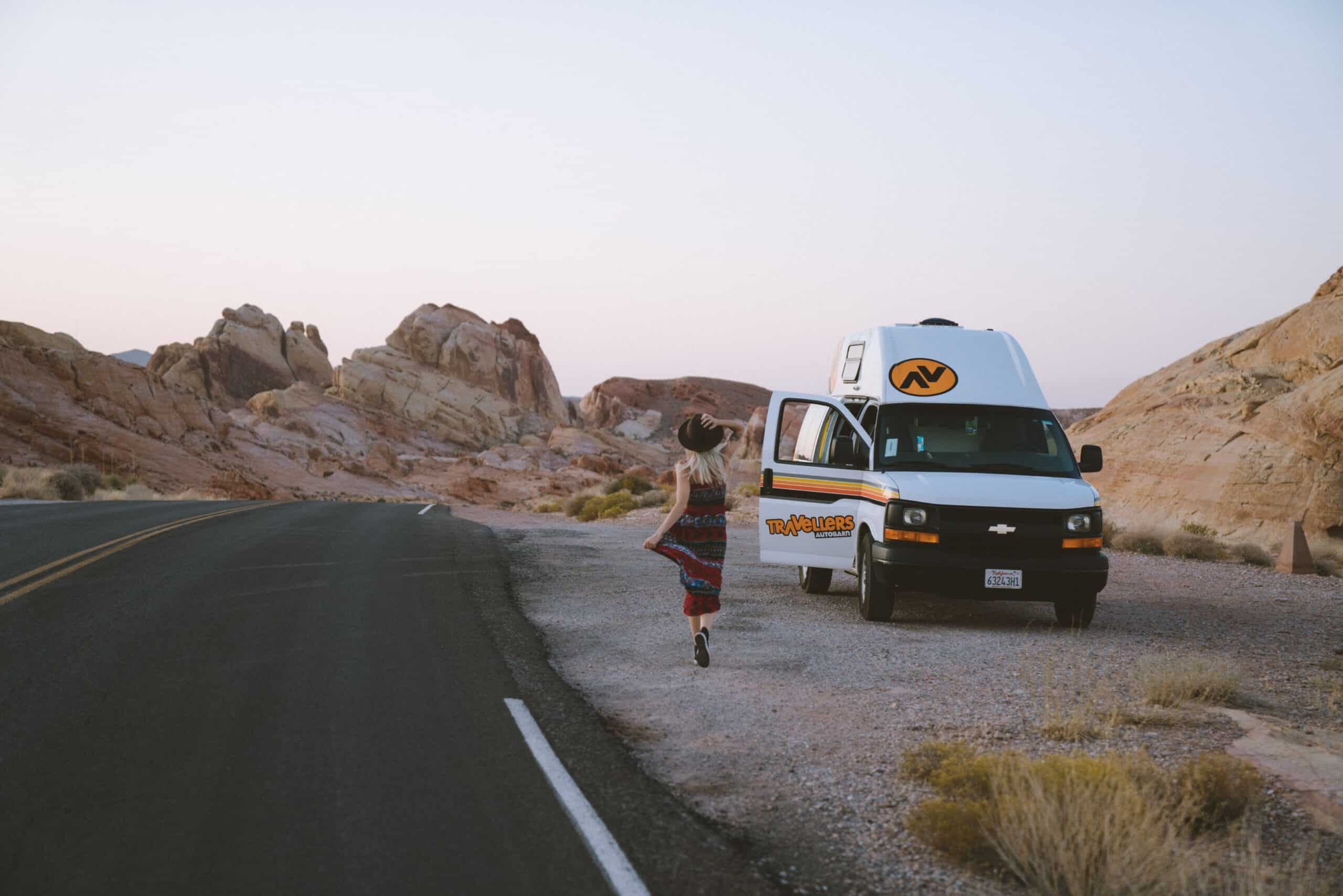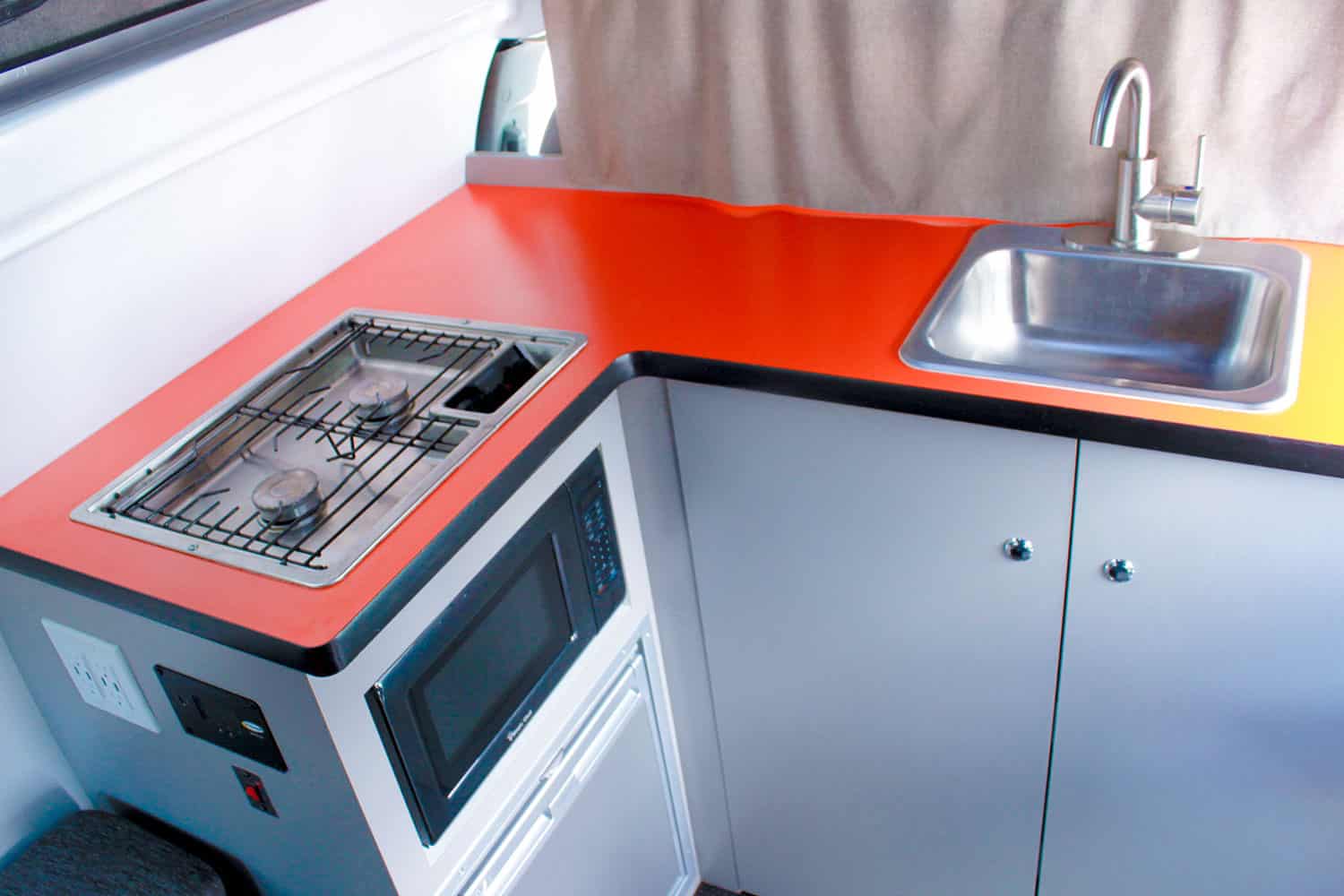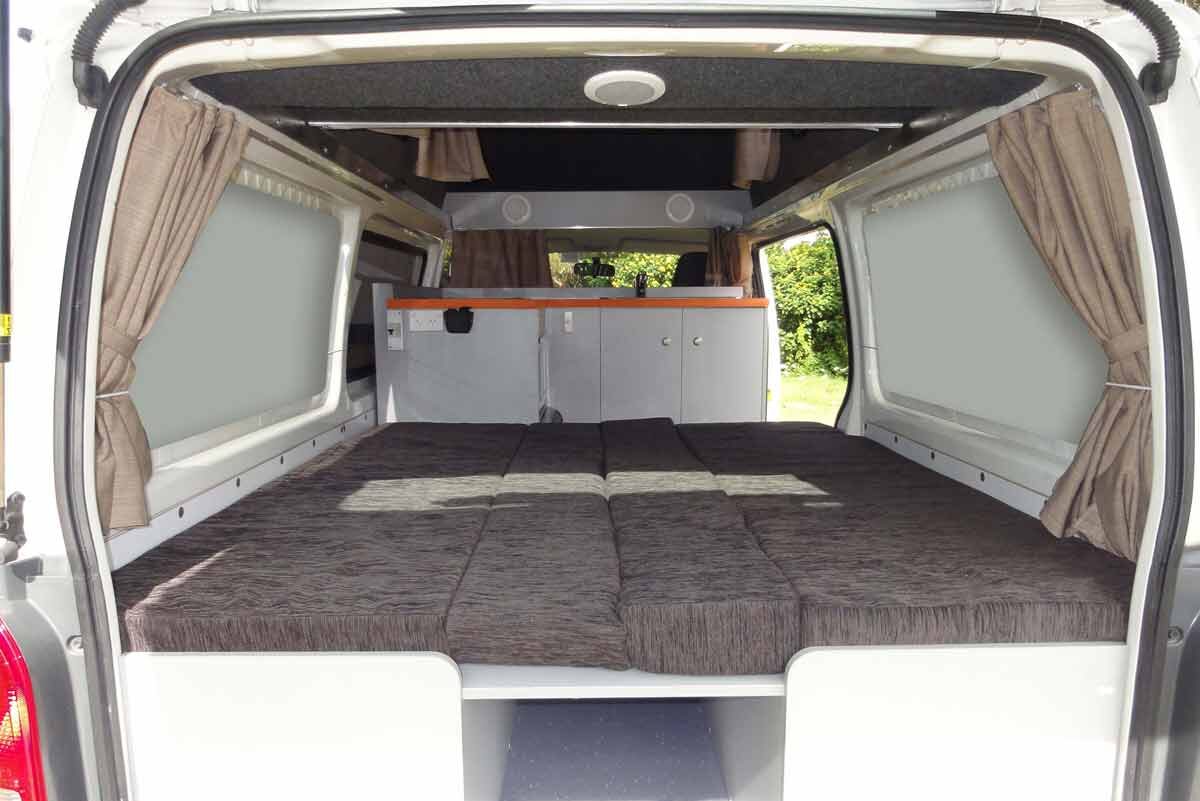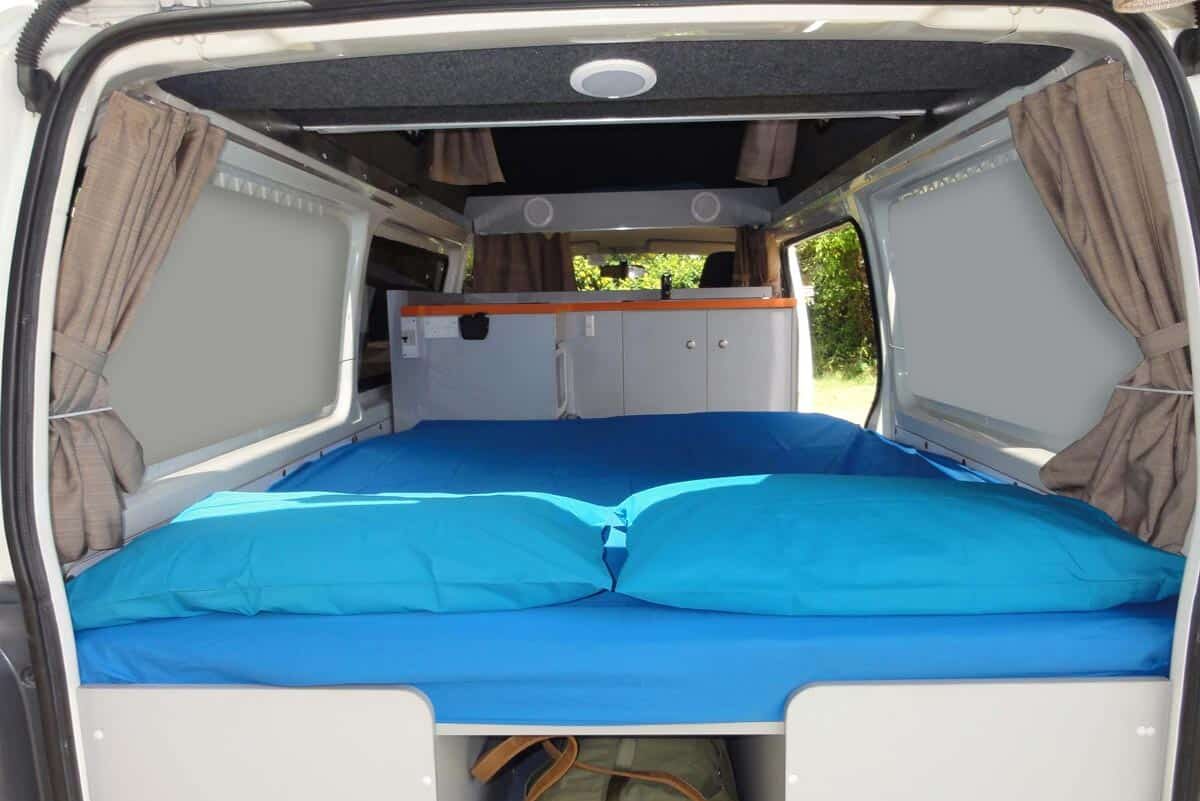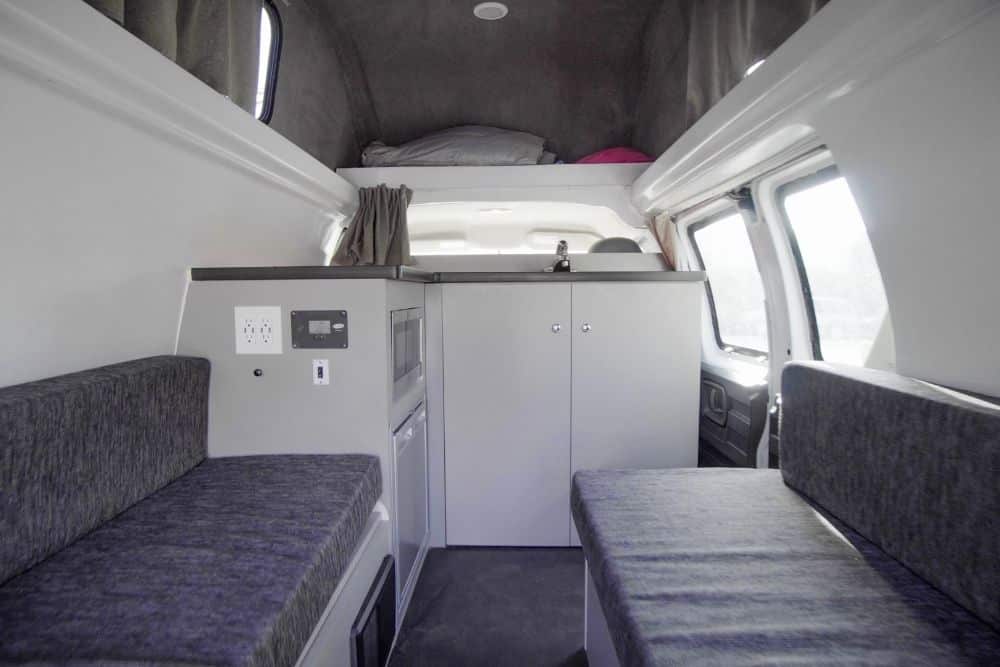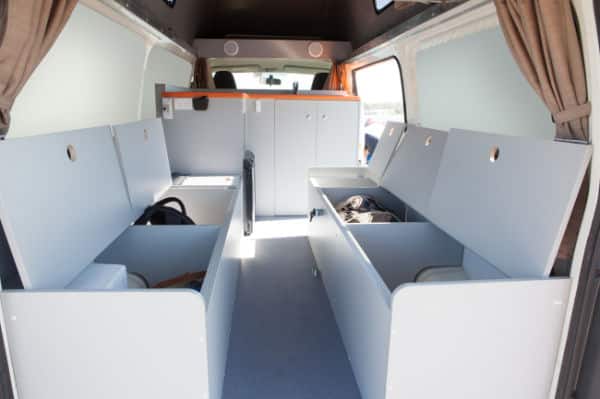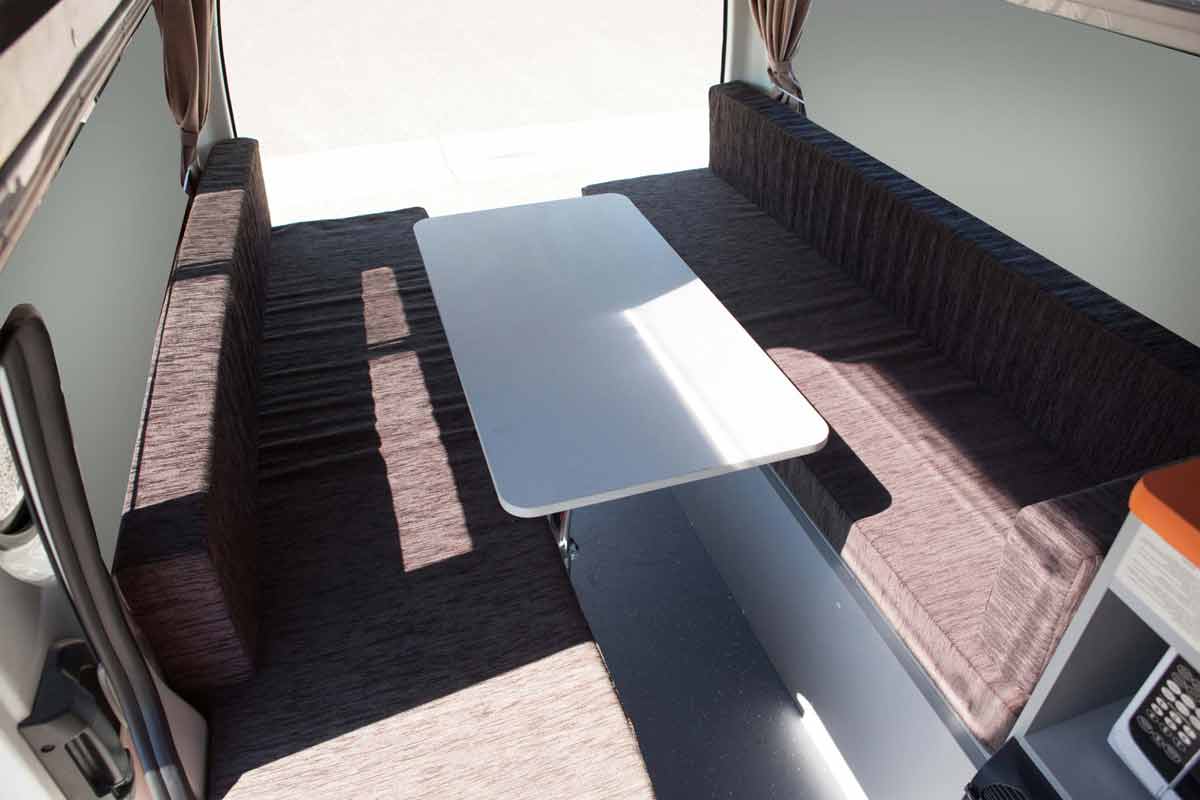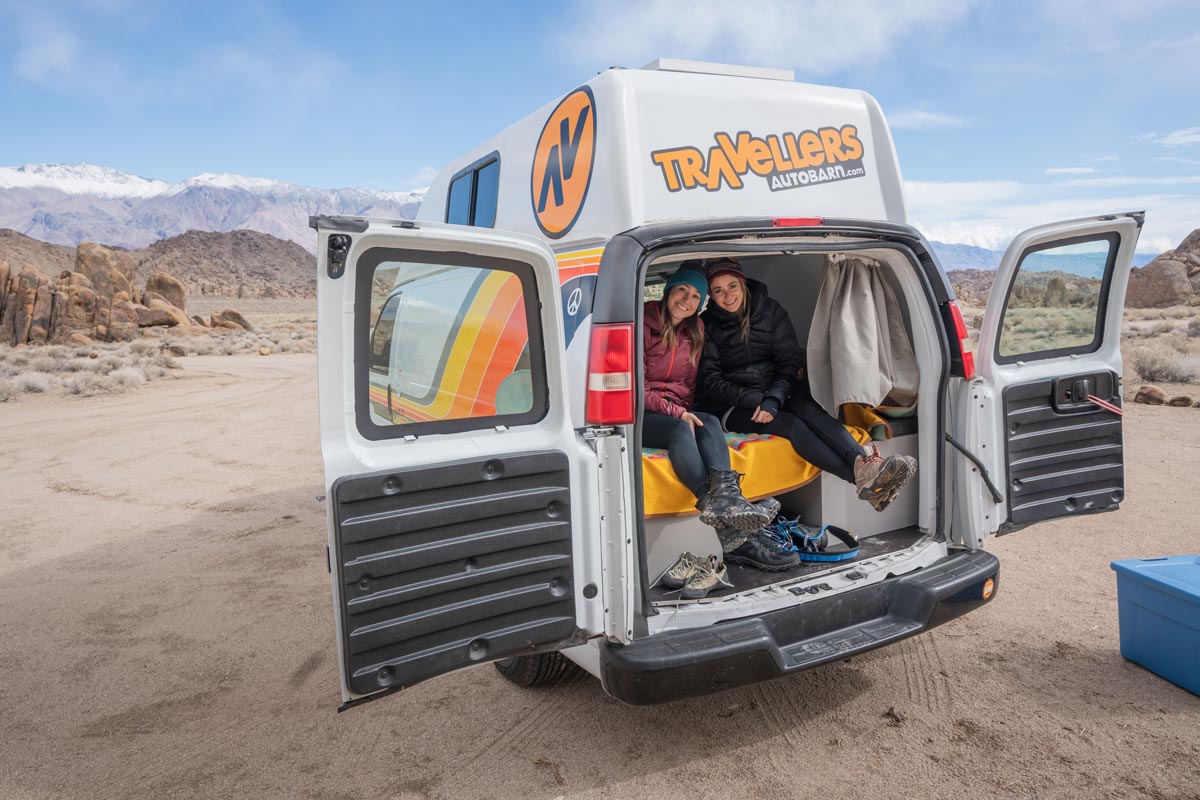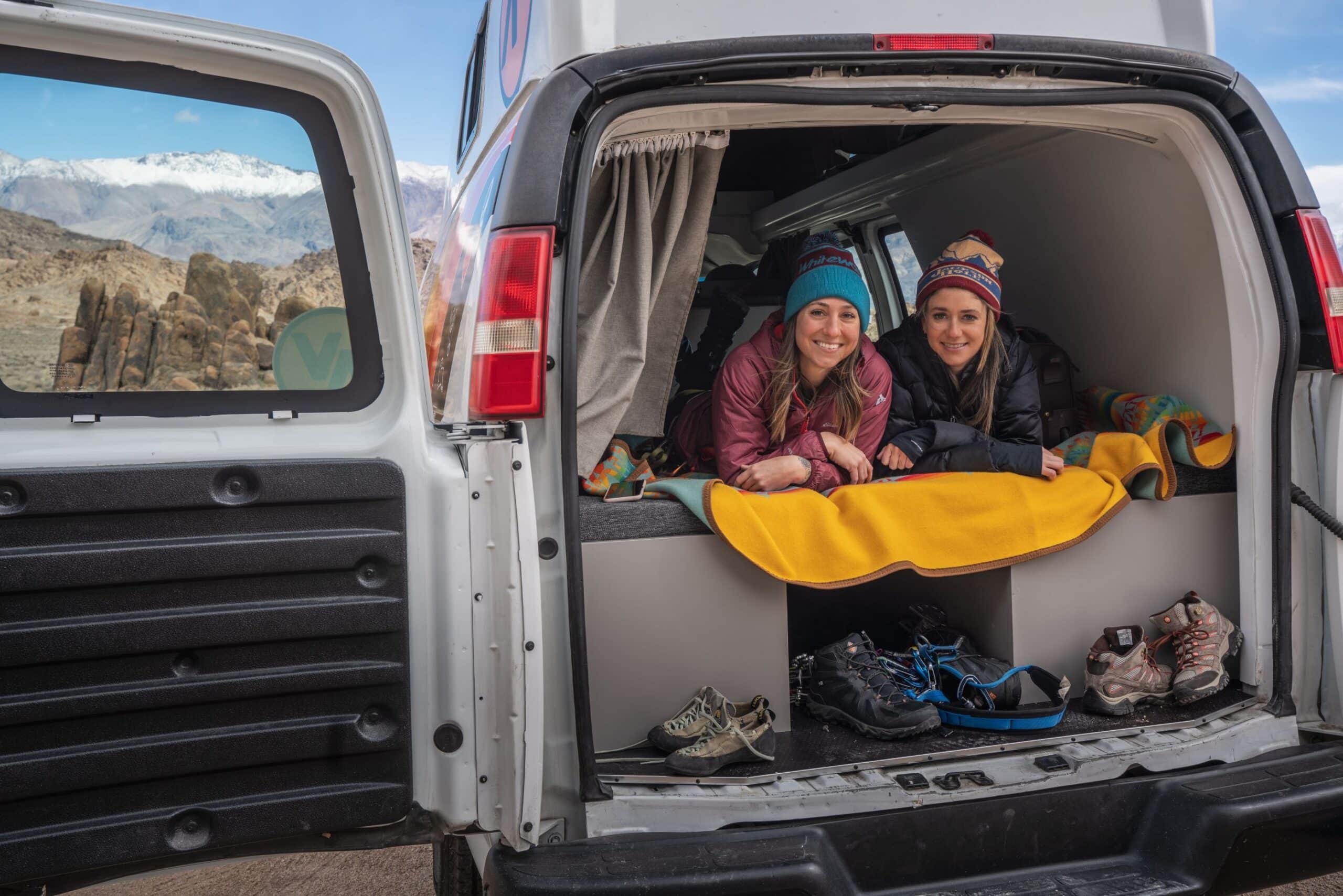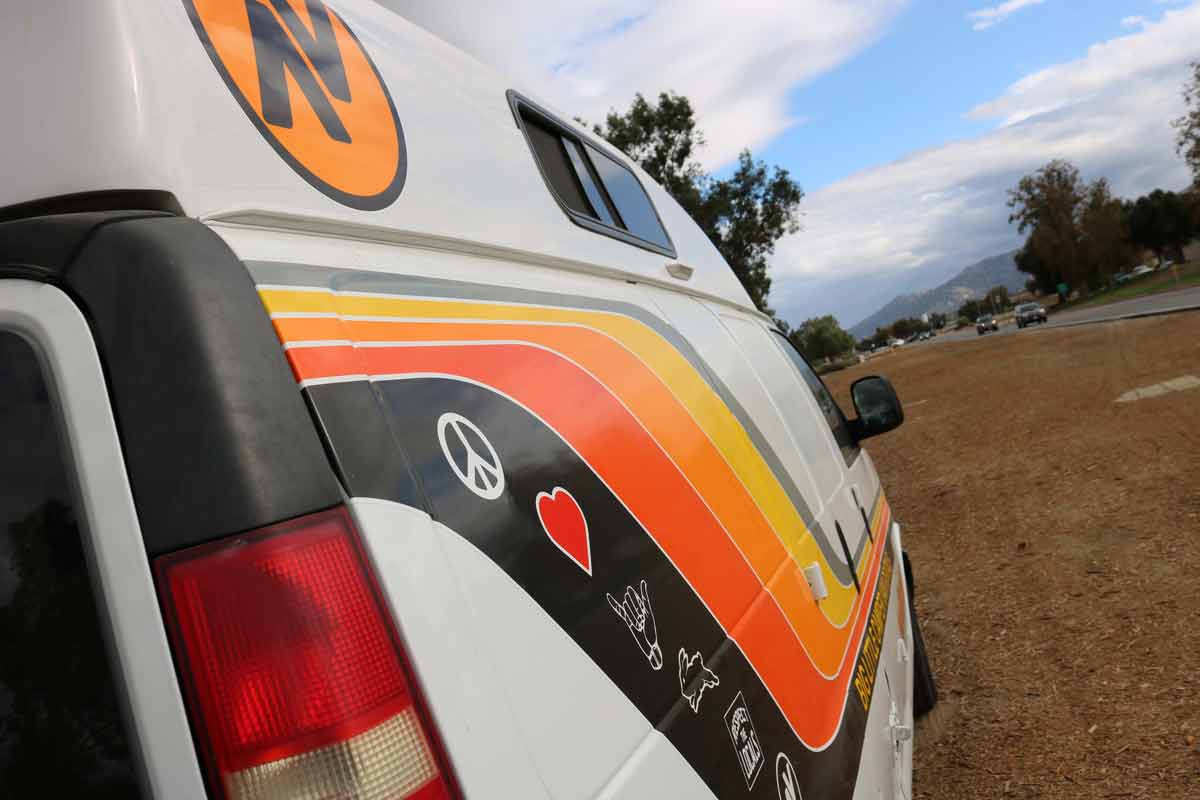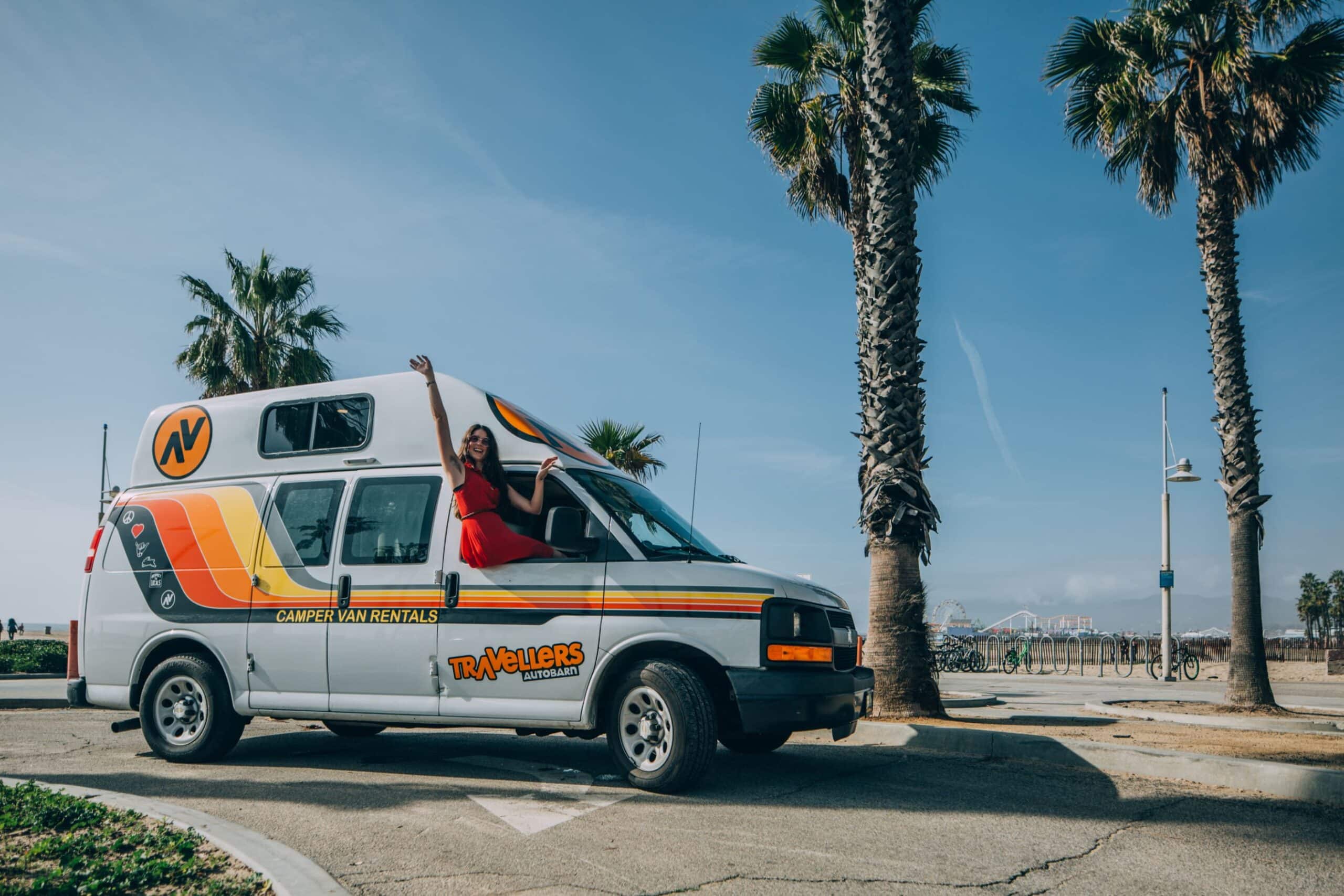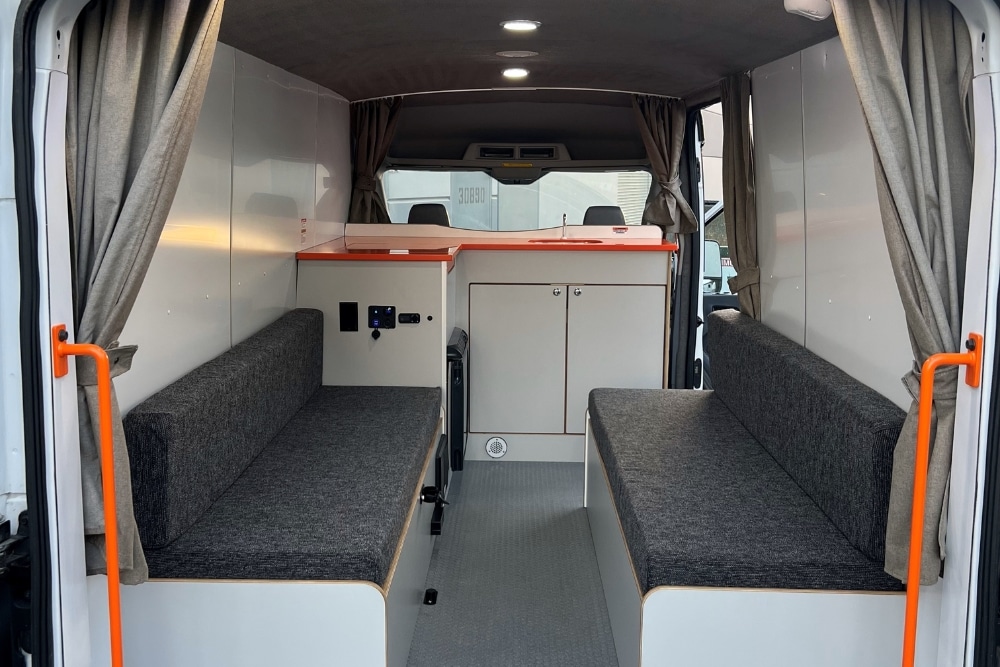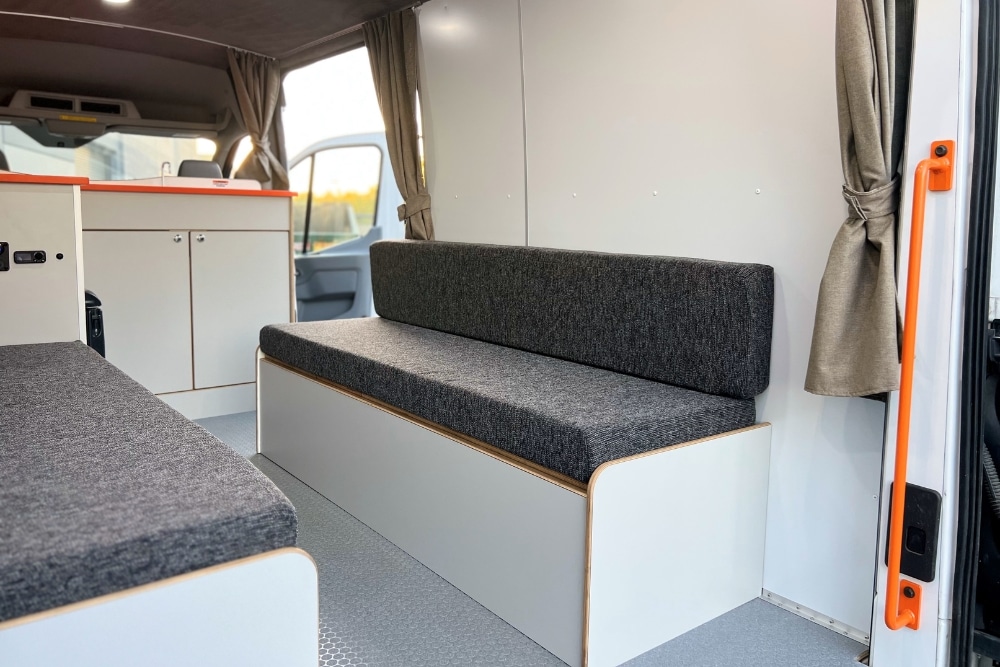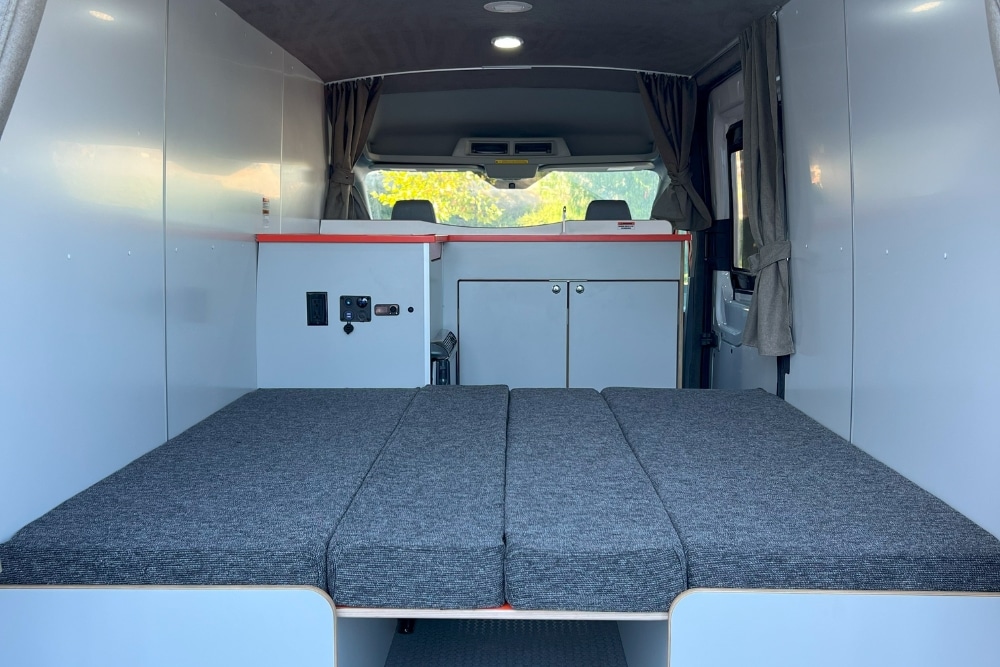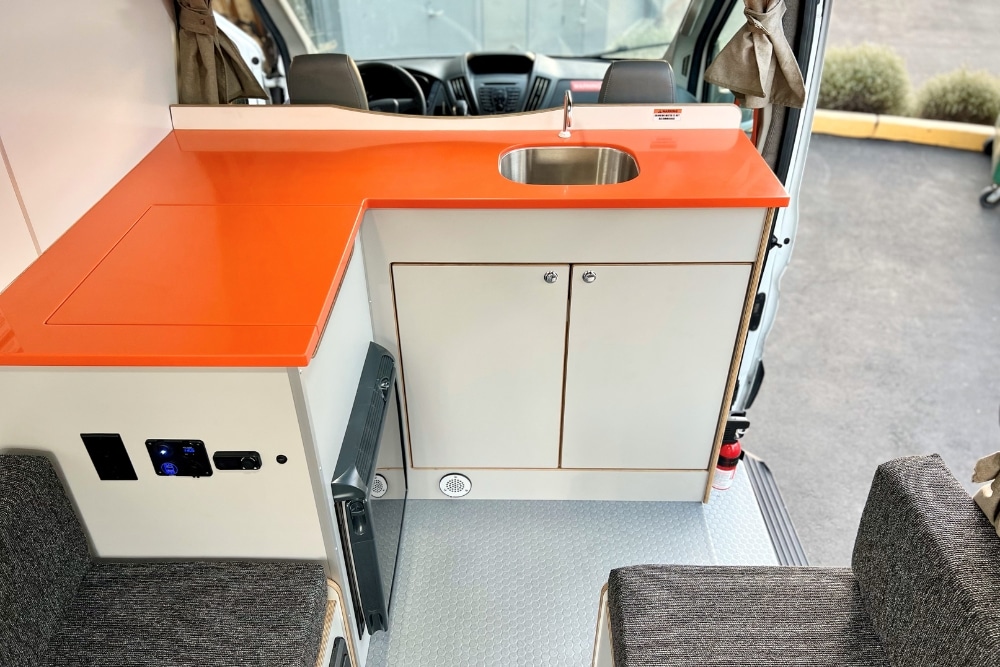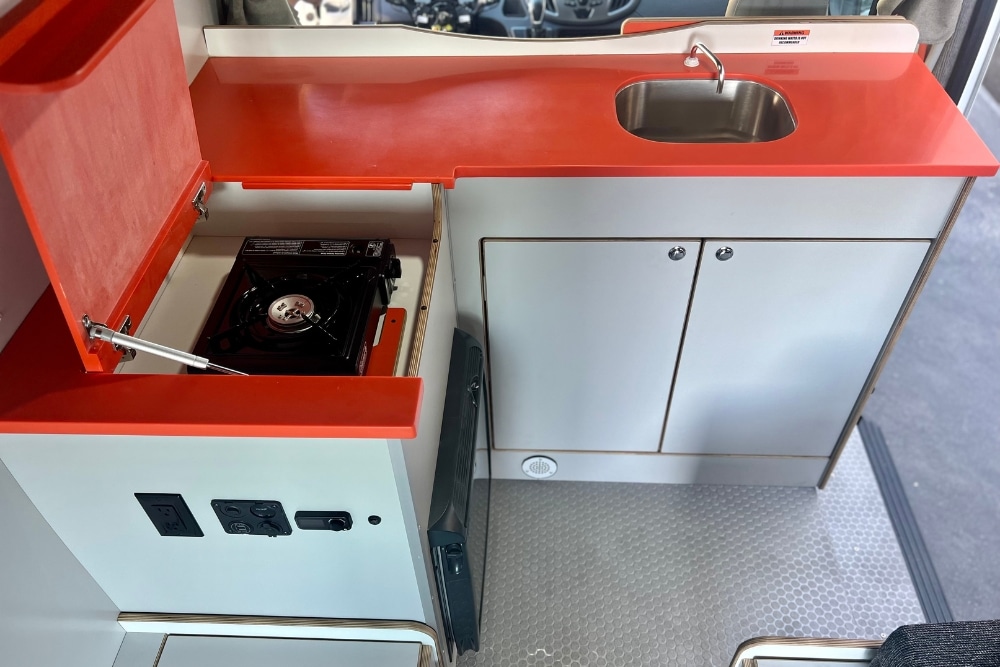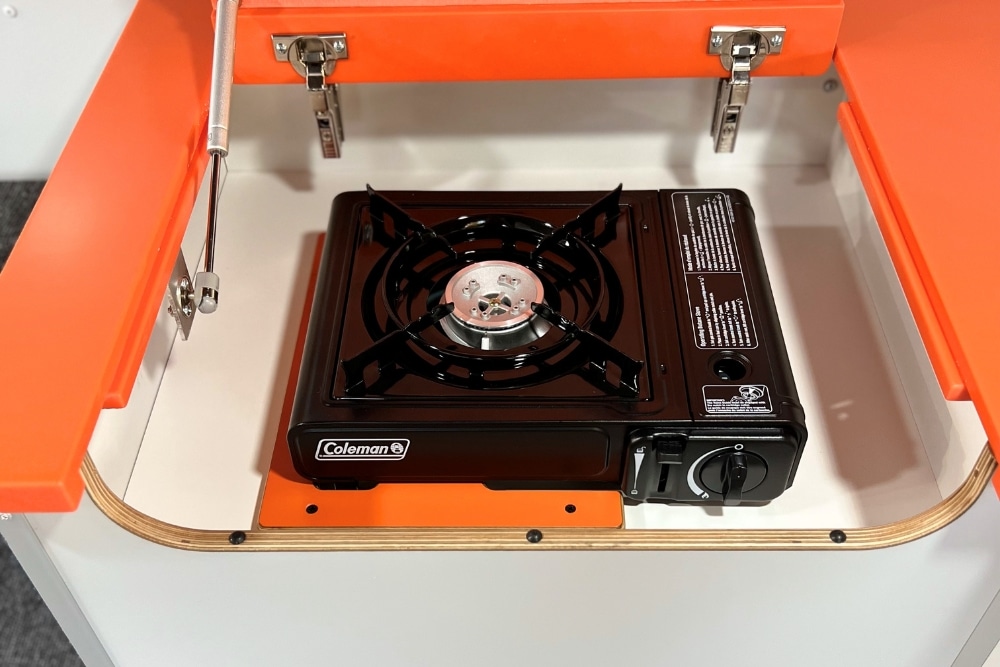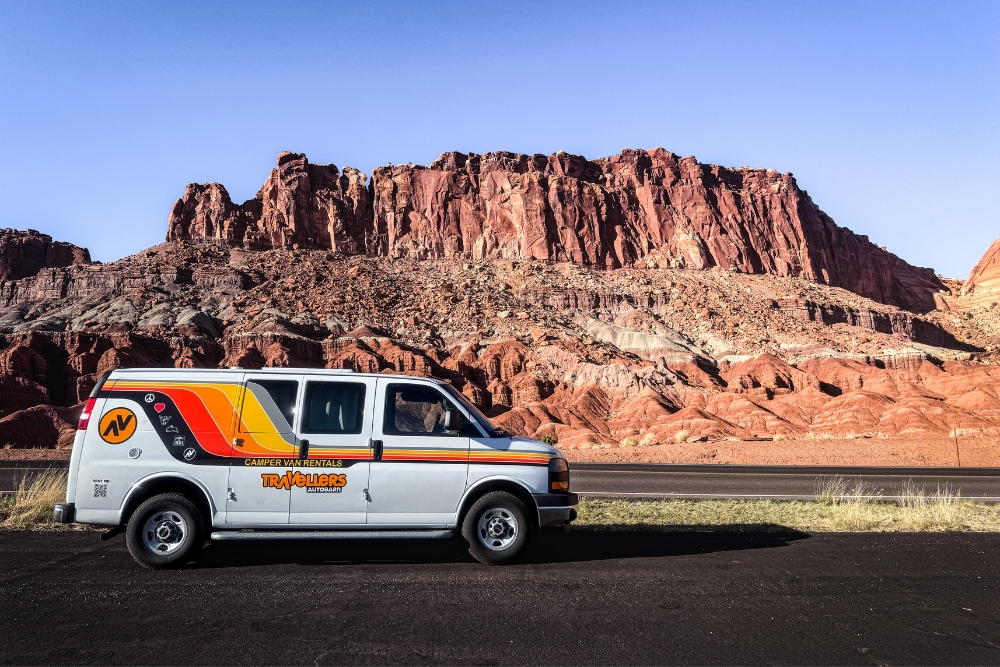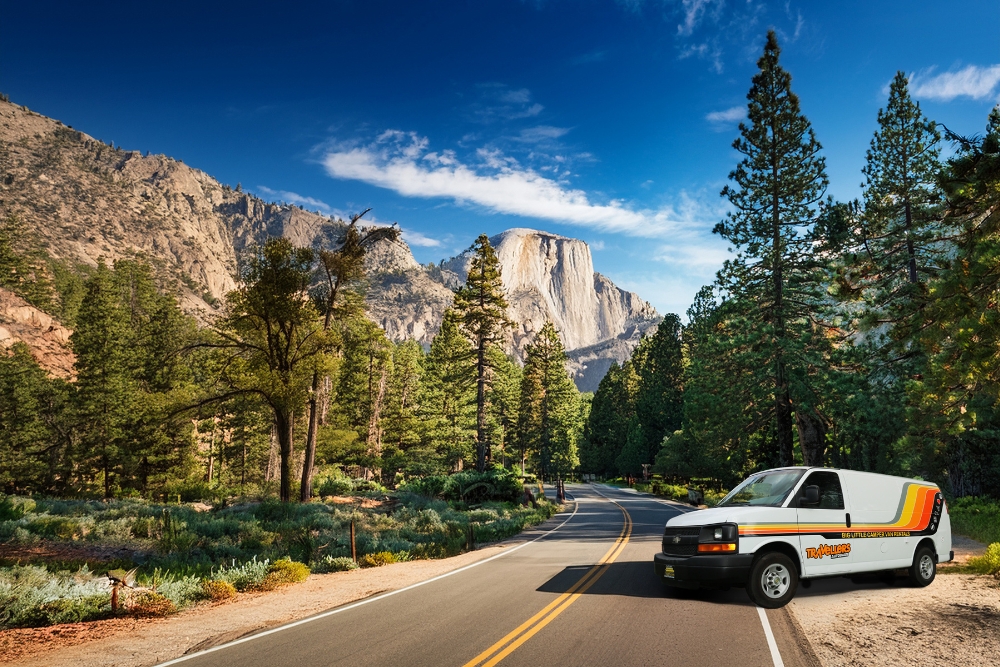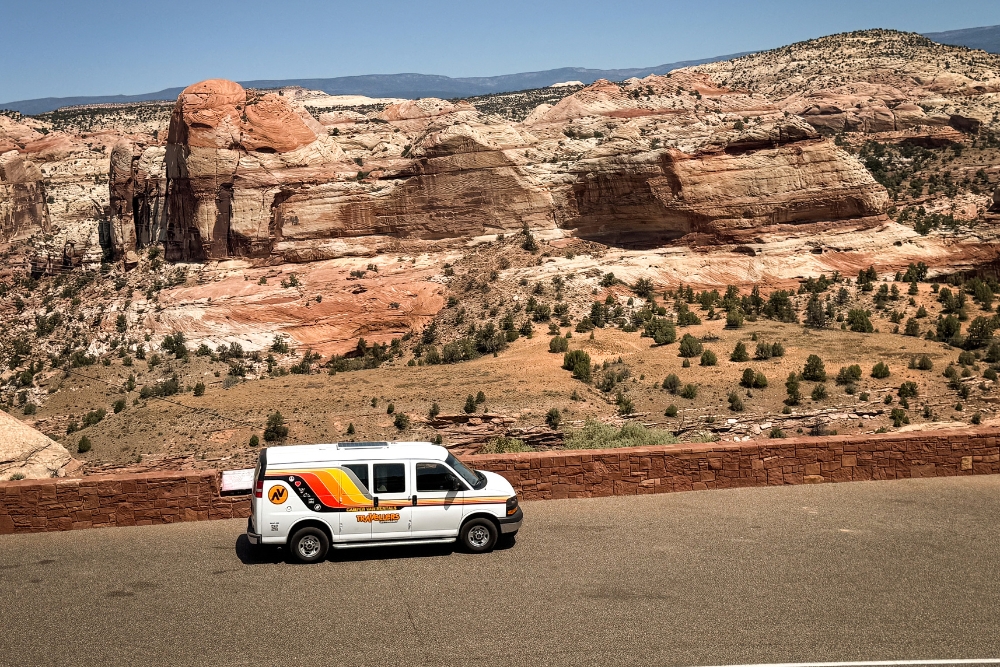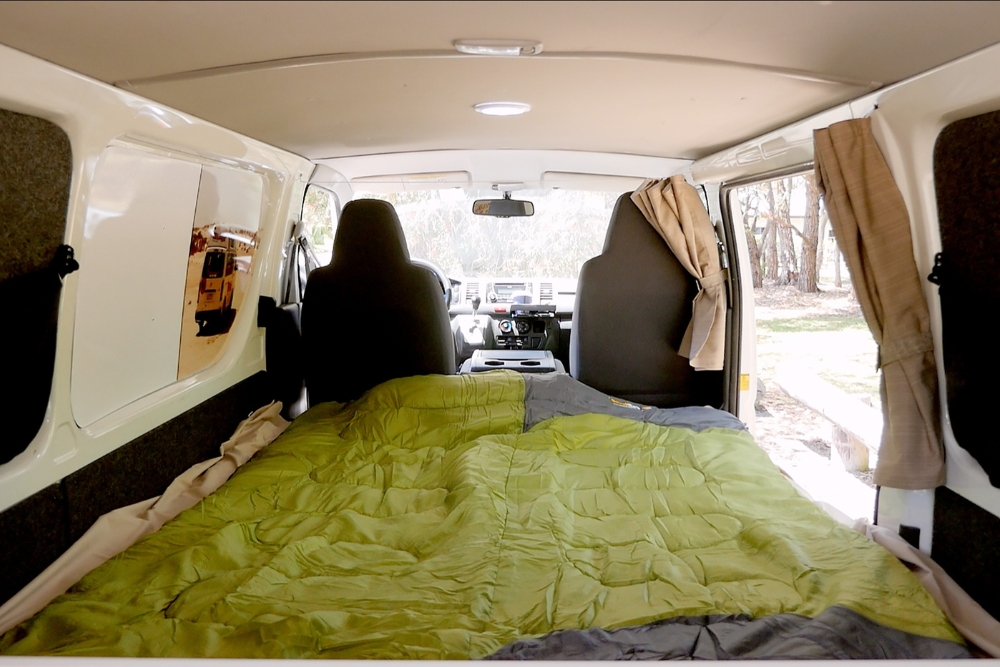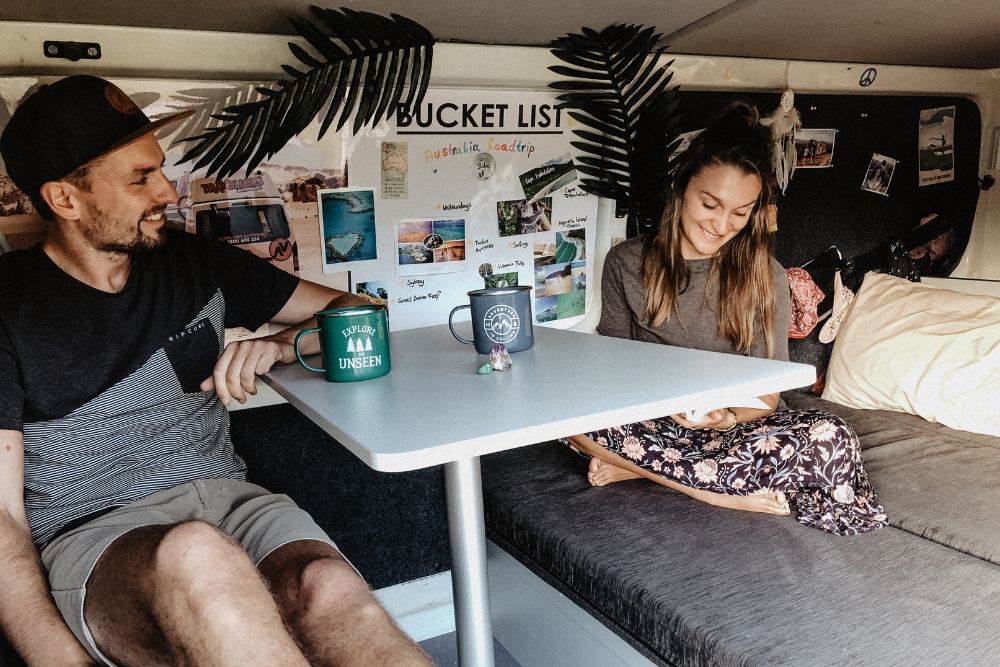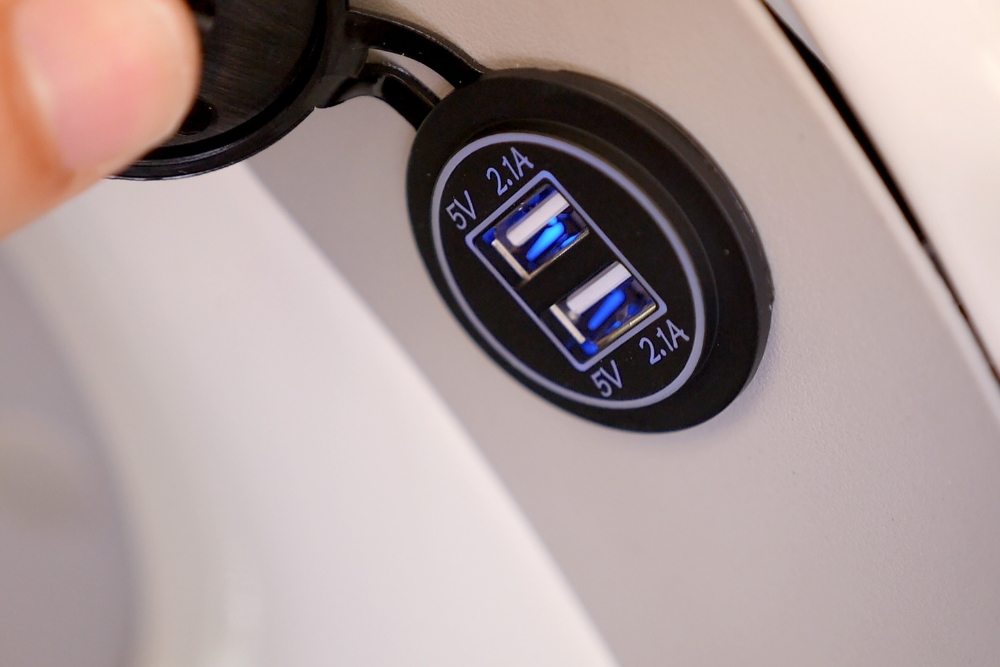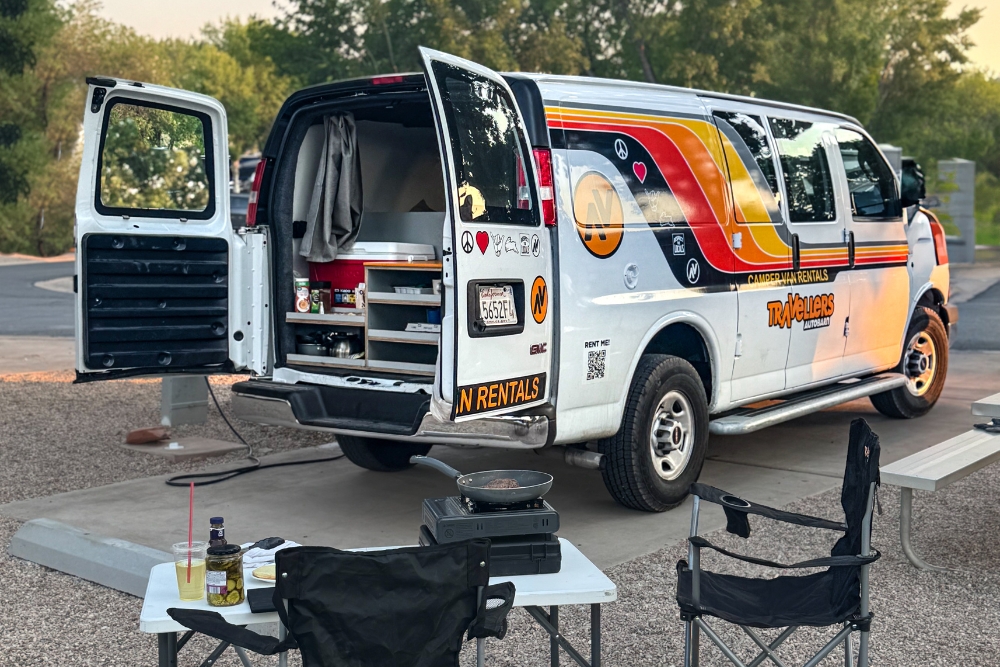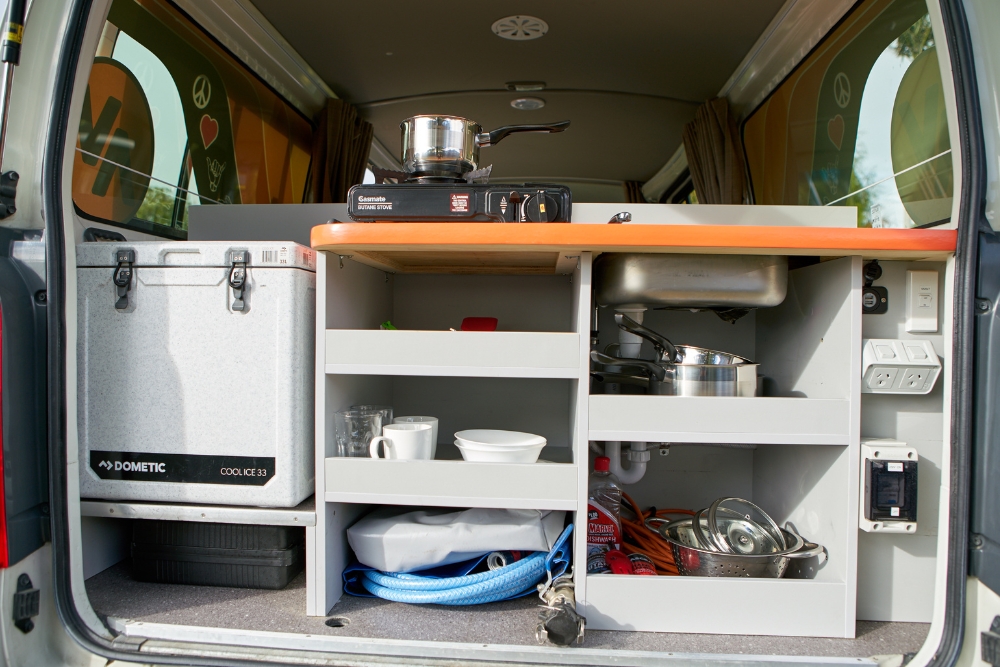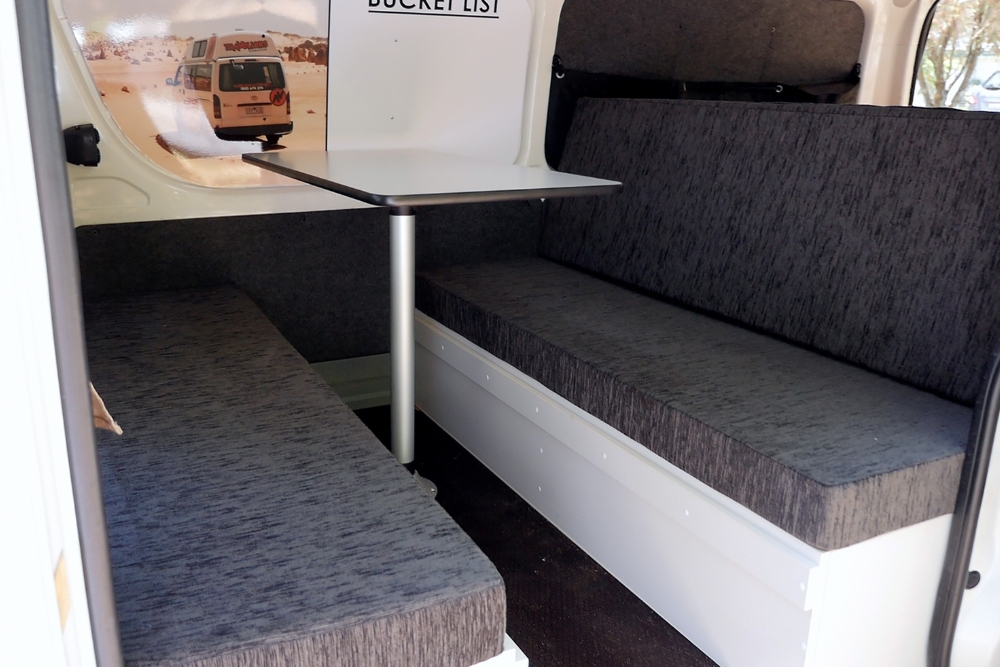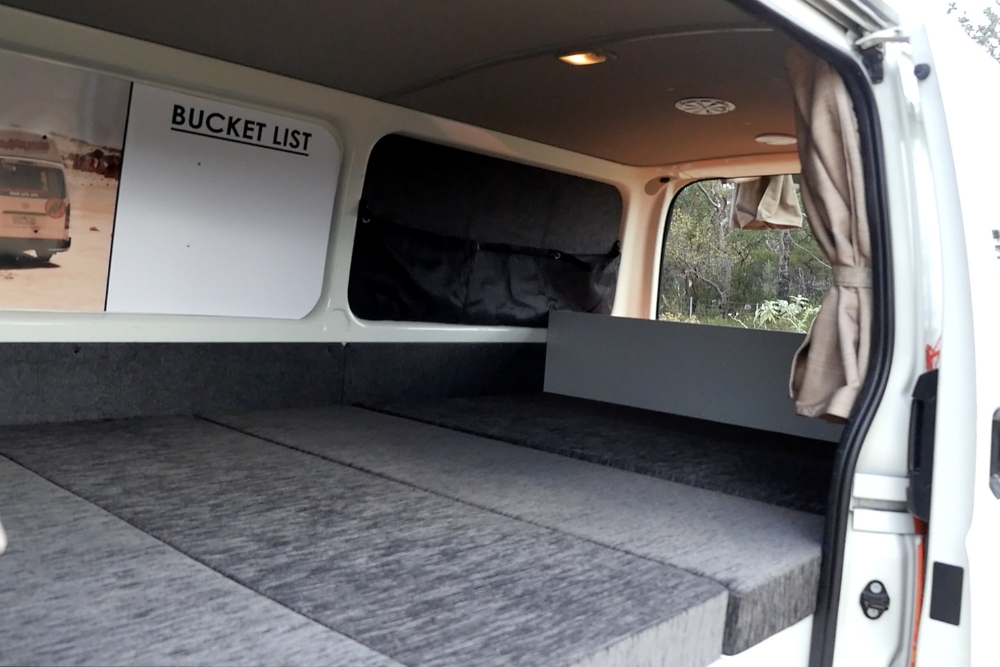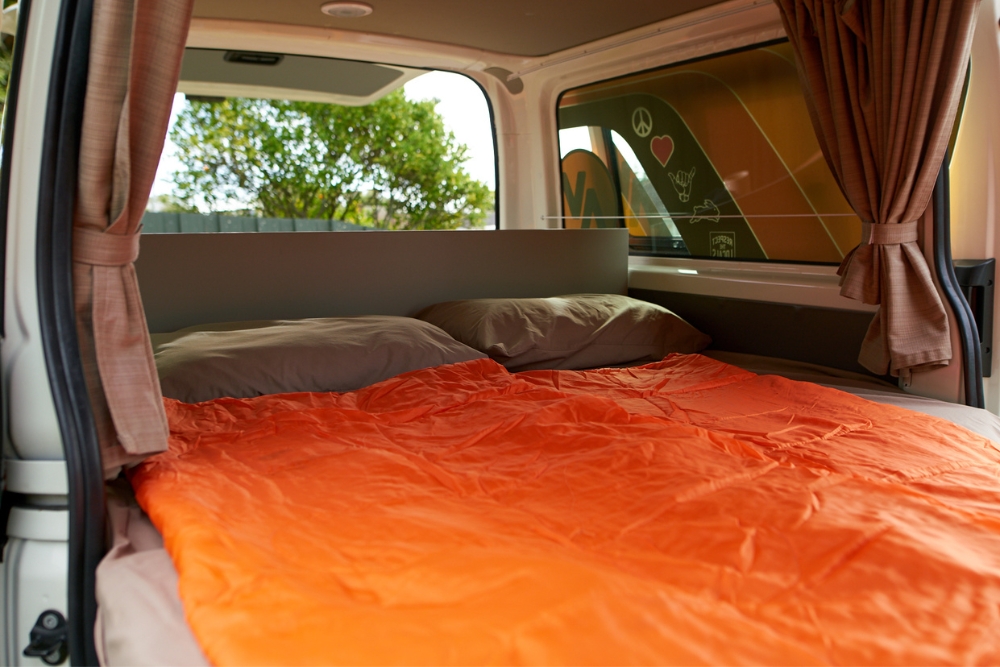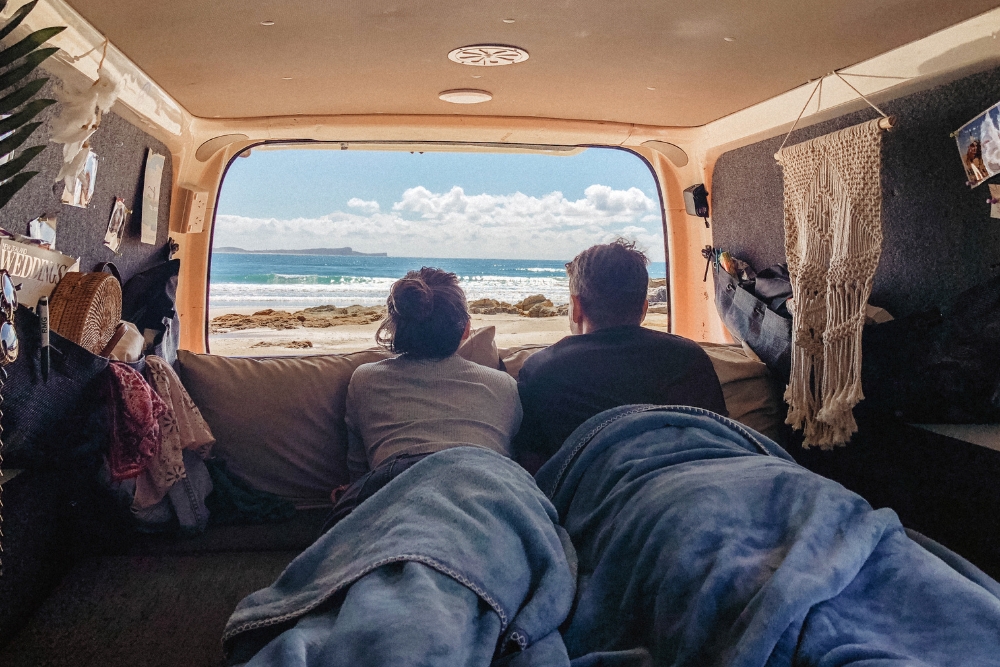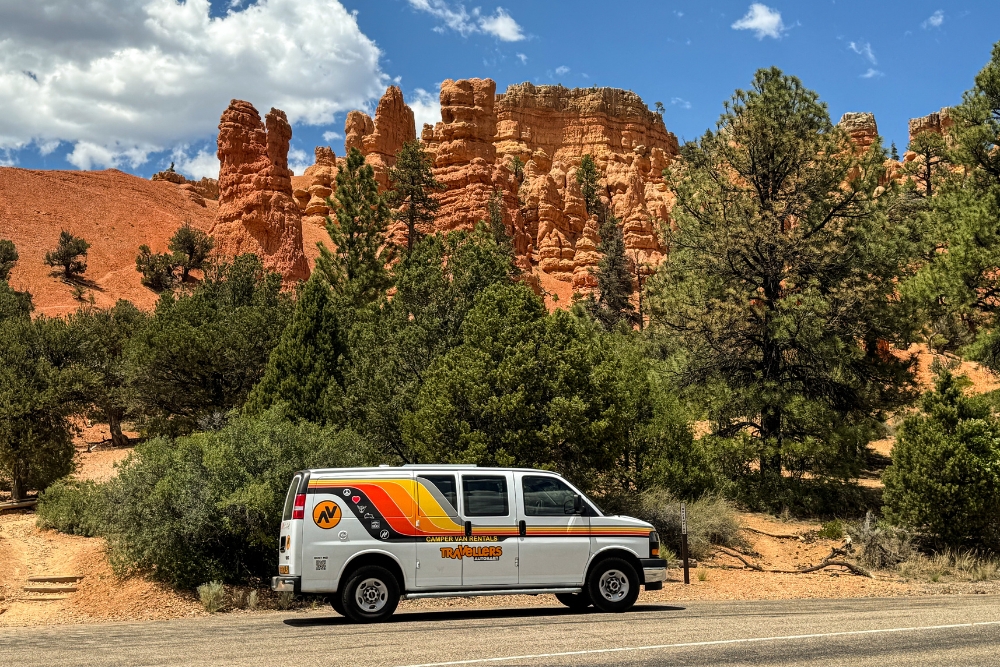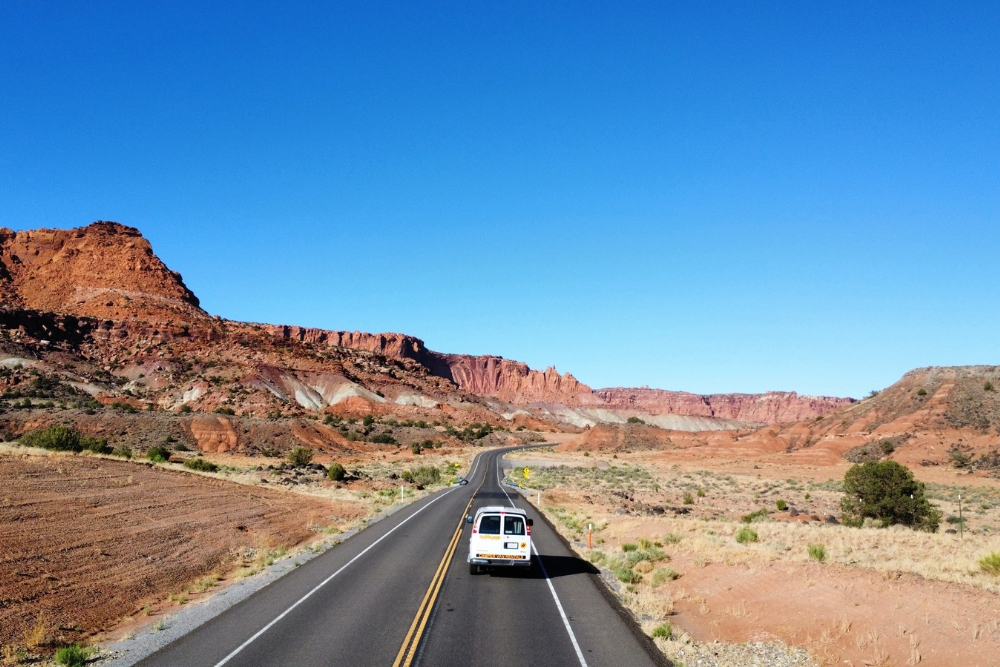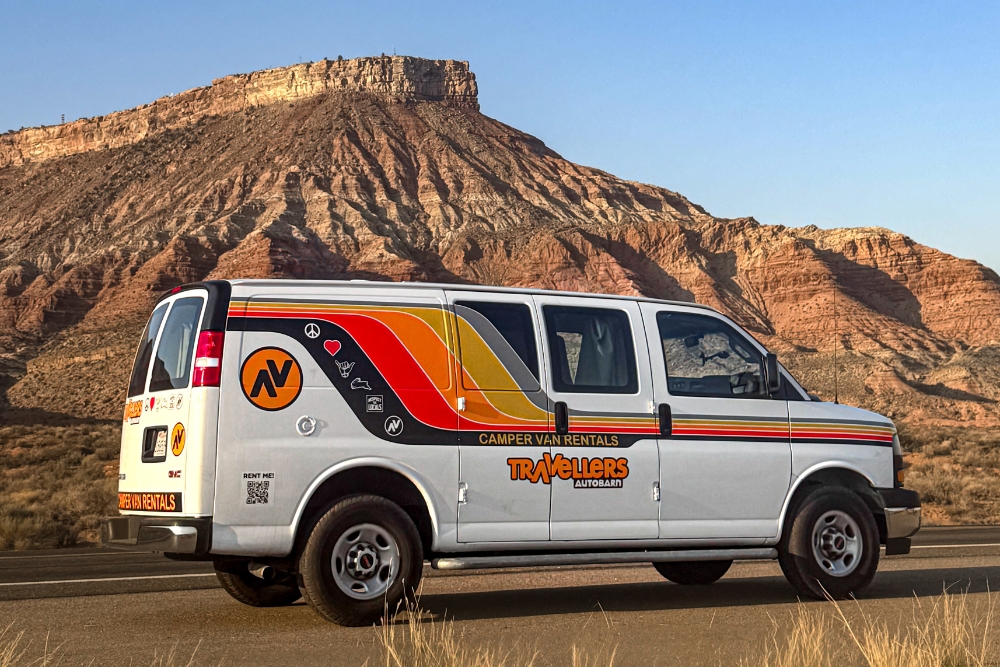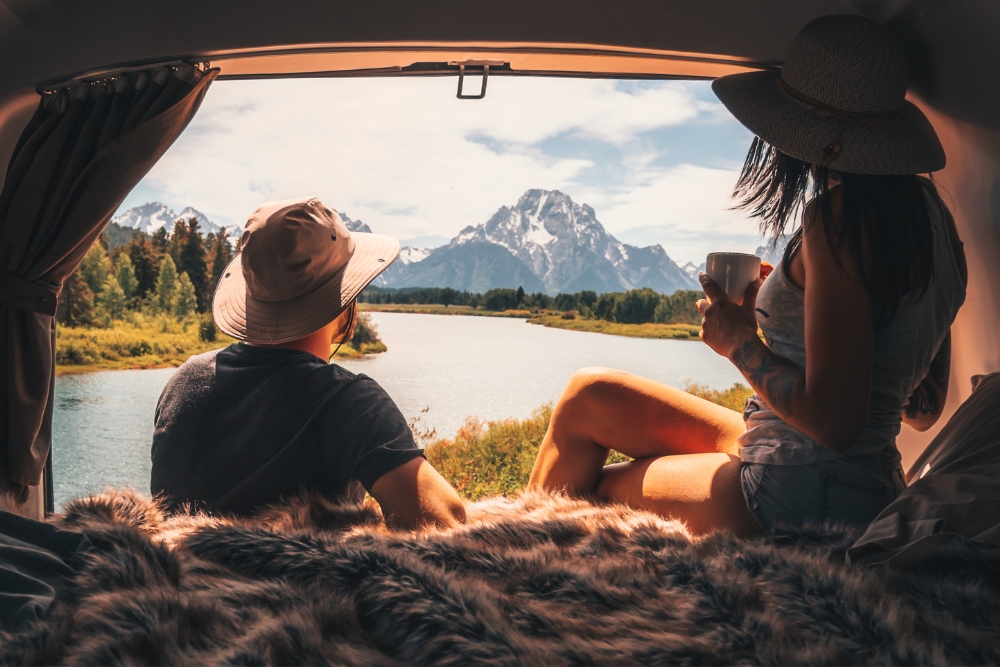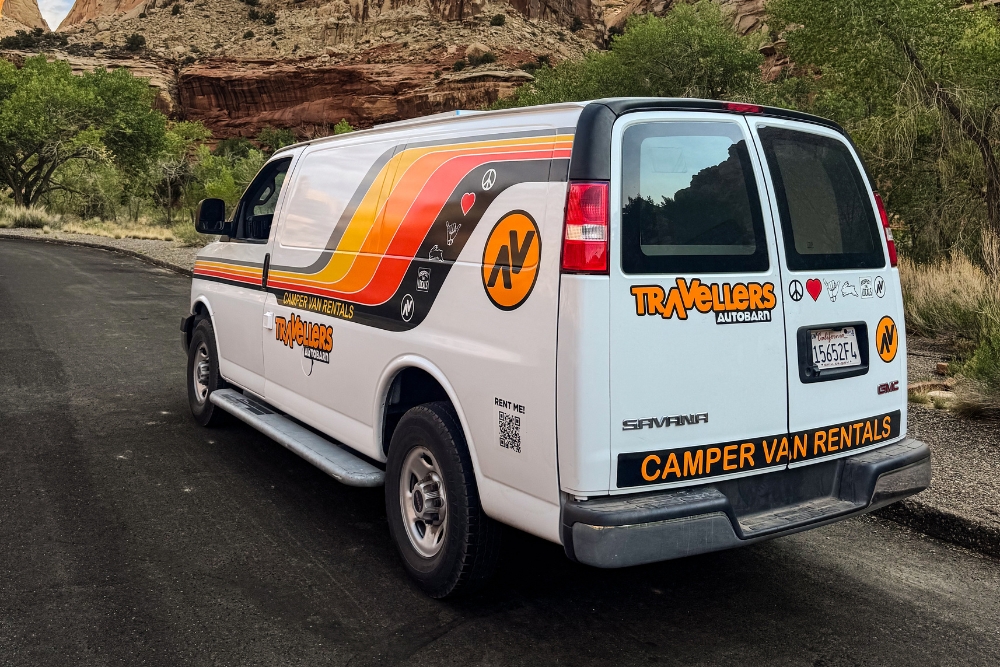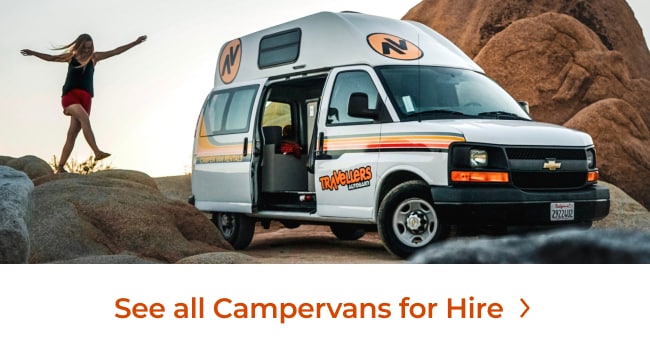Winter camping might seem like an extreme thing to some people, but for the true adventurers among us, it’s the ultimate test of outdoor prowess! Sure, it might bring up mental images of frozen fingers and waking up with icicles on your eyelashes, but for those in the know, winter camping is one of the most peaceful, rewarding, and magical outdoor experiences you can have. Imagine empty trails, no biting bugs, and a frosty landscape with peaceful silence.
Sounds good, right? Hold up. Before you jump in a campervan and hit the road, it’s important to know it’s not quite as simple as tossing your usual camping gear into a backpack and heading into the snowy abyss. Winter camping needs careful planning and preparation, and that’s where we step in to help. Consider this your ultimate guide to winter camping like a boss!
If you’re new to cold-weather road trips, check out our Van Life Guide to Winter Road Trips in a Campervan to see why winter is a great season for exploring the USA by van.
Why Winter Camping is Totally Worth It
You might be wondering why you should even think about camping during the winter. The answer is pretty simple. If you’re after the least expensive way to see the U.S.A., winter camping in a campervan is the best way of doing so. With lower campground fees, off-peak rental rates, and fewer crowds, it’s a budget-friendly adventure that still delivers all the magic of the open road.
It’s also awesome! Winter camping offers you the kind of solitude you just can’t find in the busier summer months, with quieter campsites and trailheads that really let you fully appreciate the experience.
You’re also not sweating, swatting bugs, or dodging crowds. Instead, you’re sipping cocoa by a campfire, cozily wrapped in layers, and looking out over a landscape that other fair-weather campers won’t get the chance to see. However, it’s not for the faint of heart, and you’ll need certain equipment to stay safe and comfortable, which we’ll explore below.
Still wondering whether winter is the right time for your next adventure? Here are the Top 5 Reasons to Take a Campervan Road Trip in the Winter.
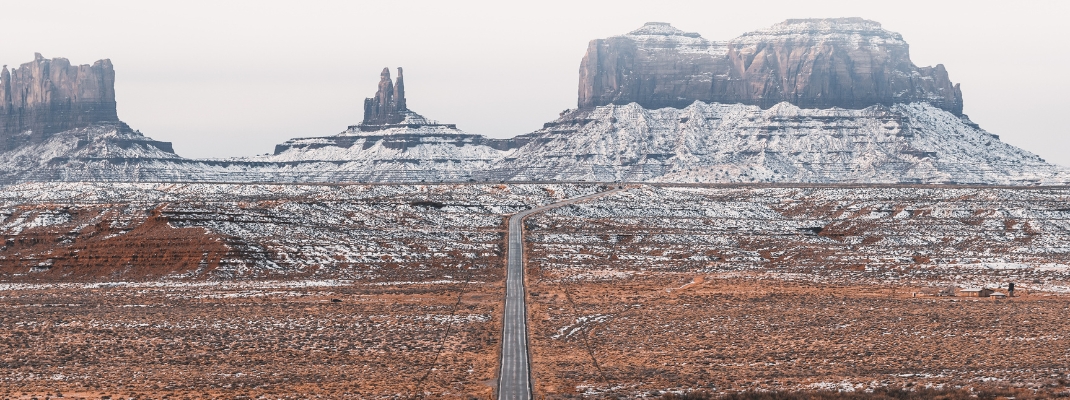
The Campervan
Winter camping in a hired RV is, without doubt, the best way to go about it. No flapping tent doors or frozen zippers, and no trying to stake something into the snow-covered ground! Instead, you’ve got a solid, comfortable place to call home throughout your trip, and with our Beeva Camper that comes complete with a built-in heater, you’ll have the warmth you need. That being said, having a campervan (whether heated or not) isn’t enough for winter camping, and to truly camp like a boss, you need to make sure you’ve got the right gear as well. Travellers Autobarn has your back here, too, with our Premium Winter Pack, which includes a 12V electric heated car blanket and a 240 Watt Jackery Explorer Portable Power Station, making it possible to stay warm even when you’re not camping at a powered site.
Want to be fully prepared? Don’t miss our guide on How to Prepare for Winter Camper Van Trips to ensure you’ve got everything covered.
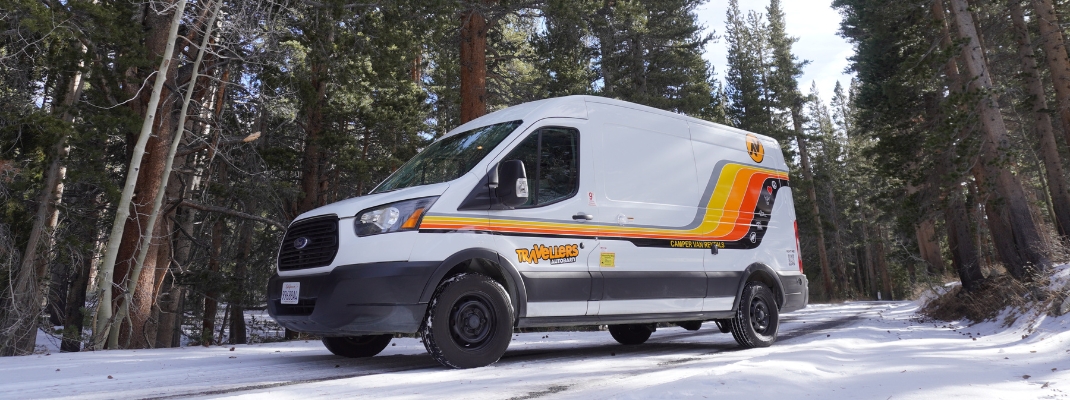
Sleeping Bag
That’s your on-road accommodation sorted. But what about the essentials you need to stay warm and comfortable, especially at night when the temperature could fall well below freezing? This is when your sleeping bag becomes your best friend.
As a good rule of thumb, choose a sleeping bag rated at least 10 to 20 degrees colder than the lowest temperature you expect to face. So, for example, if it’s going to be 15ºF at night, go for a 0ºF bag, or even a -10ºF bag if you run cold. Also, down bags are lighter and more compressible, which is ideal for saving space in your campervan.

Camp Stove & Cookware
During the summer, you’re more likely to find campgrounds that offer you access to BBQs and camp kitchens. But, in winter, you’re going to face the challenge of cooking a hot meal without these facilities to stay warm and fuelled. Don’t think you can get away with jerky and trail mix, either – your metabolism works overtime in the cold, so feeding your furnace is super important.
Luckily, some campervans come with everything you need to create delicious, hot meals on the road. For example, the Chubby Camper has a gas cooker, while the Hi-5 Campervan comes equipped with both a gas cooker and a microwave.
You can, should you wish, also take a night away from your campervan’s cooking equipment and try your hand at rustic outdoor cooking. But make sure you’ve got the right gear for the job before you start unwrapping those sausages. Canister stoves are the most convenient options in terms of space, but they can struggle in freezing temperatures unless you’re using an isobutane-propane mix and keeping the canisters warm, which, let’s be honest, is a bit of a challenge in colder conditions.
Then, there’s your cooking equipment. Bring a sturdy pot, a lighter, and waterproof matches along for the trip, as well as an insulated mug for those cozy nights in front of a campfire. Or, better yet, add some optional extras to your campervan booking, and we’ll provide them for you.
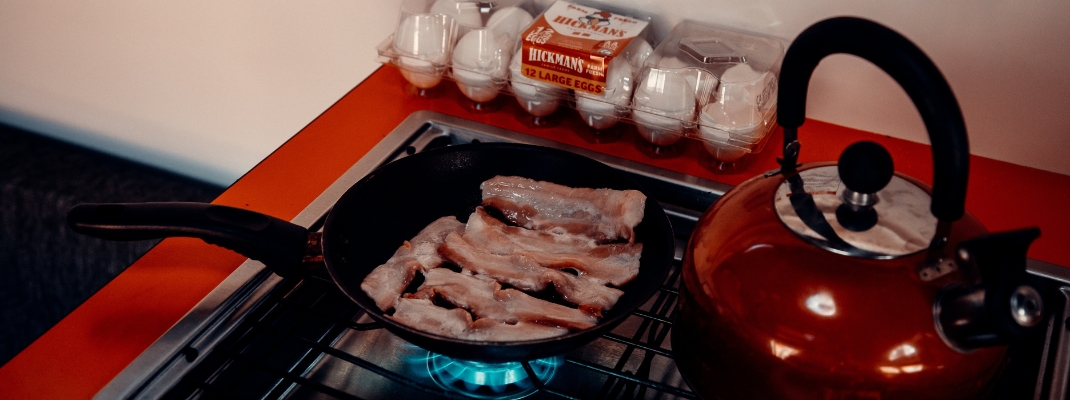
Clothing
If you’ve ever heard the phrase “there’s no such thing as bad weather, on bad clothing”, winter camping is where that theory gets put to the test! To keep yourself warm and protected, there’s a simple clothing formula you should follow – base layer, mid layer, outer shell.
This means starting with a moisture-wicking base layer, like merino wool or synthetic, that will sit next to your skin and pull sweat away. Next, add an insulating mid-layer like fleece or down for warmth, followed by a top layer with a waterproof, windproof shell that will protect you from the harsh elements. Your lower half needs the same treatment, too. Go for base leggings, insulated pants, and a waterproof shell to keep your base layers dry when you’re hiking in snowy or wet and windy conditions.
Wool socks are also non-negotiable, and you’ll want to pack a few pairs so you know you’ll always have a dry set waiting. Likewise, gloves or mittens, a beanie, and a neck gaiter or balaclava should be packed. Essentially, you can’t pack too much when it comes to warm clothing, so make sure you bring extras of everything.
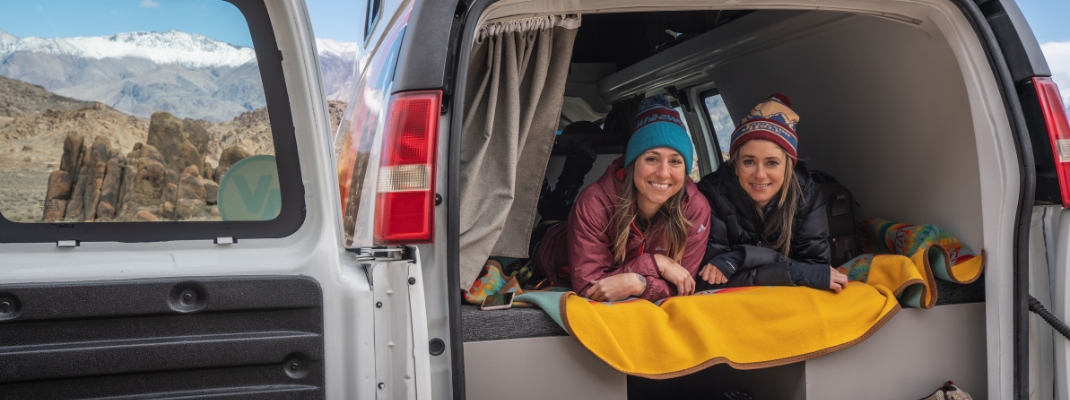
Footwear
It’s easy to think that your normal summer hiking boots are enough, but winter camping is a whole different game, and you’re going to need footwear that is insulated, waterproof, and cold-rated. Look for something with a temperature rating of at least 20ºF colder than what you’ll be camping in, preferably with removable liners, which are awesome because you can pull them out to dry at night.
Your boots should also have thick soles to keep you off the cold ground and be roomy enough to accommodate a couple of layers of thick socks without cutting off circulation. Invest in some gaiters, too. These will wrap around your lower legs and boots to keep the snow out, which is especially useful if you’re planning to tromp through deep drifts.
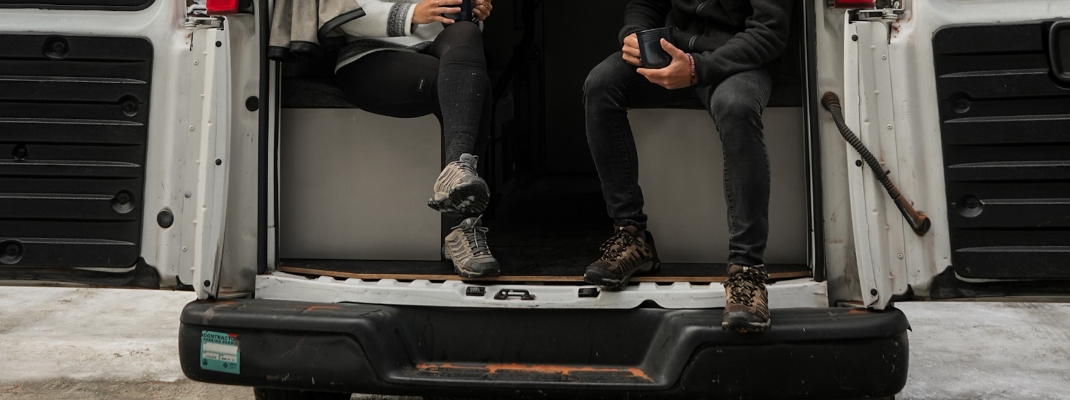
Lighting
Winter days are short, and once the sun goes down at 5 pm, you’ll be relying on your headlamp or lantern for pretty much everything. With this in mind, bring a reliable headlamp and plenty of fresh batteries or, better yet, invest in a rechargeable lantern or some LED string lights so you won’t be caught short with no batteries for power.
Backpack
With all the extra gear you need to pack for a winter camping trip, it won’t come as much of a surprise that your load is going to be bigger. So, to make sure you can comfortably fit everything you need into one bag, it’s a good idea to invest in a backpack with a capacity of at least 65L. This might seem a little over the top, especially if you’re used to summer camping, but remember you’re going to need bulkier clothes to stay warm in the freezing weather.
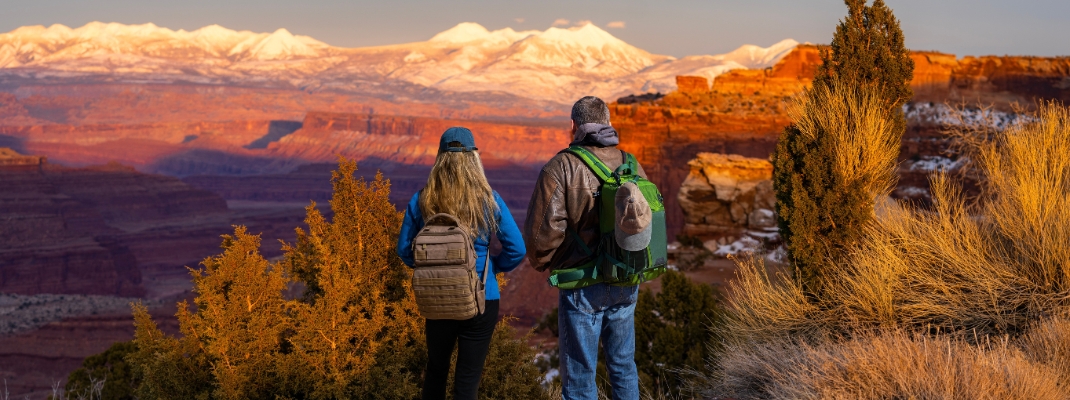
Water
This is something that catches a lot of winter campers off guard, but staying hydrated is just as important in the cold as it is in the heat. You’ve got a few perks when you’re camping in a campervan, like being able to store water in a warmer space so it doesn’t freeze, but what about when you’re out exploring?
An insulated water bottle is your best friend in this situation, as the thick walls will slow the freezing process down. Don’t be tempted by a hydration pack, even if you’ve got a trusty summer camping one, as it simply won’t insulate the water in the same way as a bottle, and the last thing you want is to be out on a snowy hike without any way of keeping hydrated.
Keep refilling your water supply in mind, too. Many spigots at parks and campgrounds are shut off in the winter, so when you do find a reliable supply, stock up as much as you can. Melting snow is also an option if you’re in a real pinch, but it’s time-consuming and takes a surprising amount of fuel to turn into usable water, especially given it needs to be boiled to kill any contaminants.
First Aid
Every camper should have a first aid kit ready to use, but winter camping comes with some unique risks that you need to be prepared for, including slips and falls, frostbite, and hypothermia. So, along with your basics like bandages, medical tape, and antiseptic wipes, add hand warmers, a space blanket, burn cream, and an emergency bivy sack to your kit in case someone gets stuck outside and needs backup insulation.
You should also be aware of the signs of certain cold-weather-related problems like hypothermia and frostbite. Frostbite, in particular, can sneak up fast, especially on fingers, toes, noses, and ears. If the skin looks pale or feels numb, it’s time to warm up. This needs to be done gently, though – don’t rub or apply direct heat. Instead, warm the areas gradually.
It’s also a good idea to carry electrolyte packets and high-energy snacks on you at all times in case someone’s energy crashes in the cold. Low blood sugar can mimic hypothermia symptoms, and that’s a spiral you want to catch early!
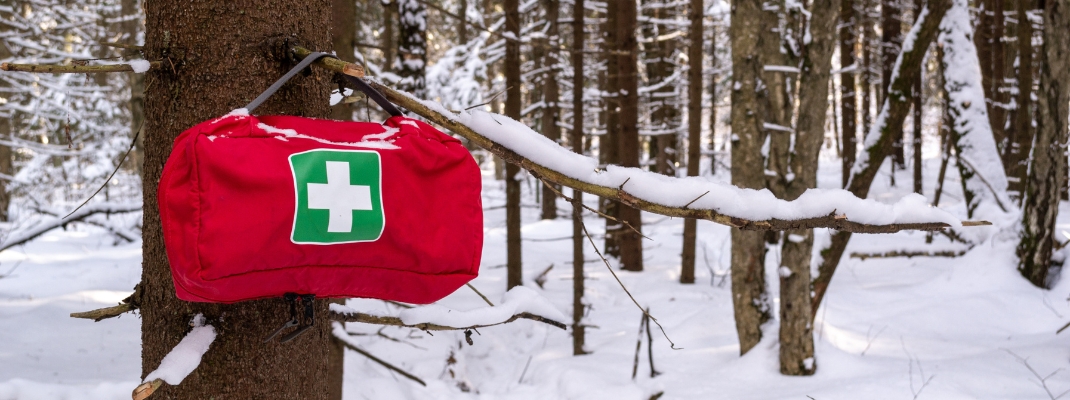
GPS
Getting lost on the road is bad. Getting lost on the road with low visibility and five hours of daylight? That’s next-level bad! This is why winter camping calls for more than just a phone to find your way from A to B, especially in remote areas where cellphone service can be spotty or nonexistent.
To stay safe and on track, make sure you add a dedicated GPS device to your campervan rental. This will direct you where you need to go when your phone fails to connect, and since you can plug it directly into your campervan, there’s no risk of it suddenly dying on you, either.
Get the Best Rates on Campervan Rentals Across the USA
Ready to put all this winter camping wisdom into action? At Travellers Autobarn, you can hire an affordable campervan from multiple locations across the USA, and with free unlimited miles as standard, you can explore the best snow-covered regions without worrying about racking up extra fees. Find your campervan and stary planning your winter getaway today!
Not sure where to head out on your winter adventure? Here are some other articles on winter road trips you might want to check out:
- Best National Parks for a Campervan Winter Getaway
- Top 5 Winter Road Trips for Camping Enthusiasts
- Top 5 Reasons to Take a Campervan Road Trip in the Winter
- Van Life Guide to Winter Road Trips in a Campervan
DISCLAIMER: All information provided, including prices, availability, and site details, is correct at the time of publishing. We recommend contacting campsites or caravan parks directly to confirm the latest details before planning your visit. Please review our Terms and Conditions for additional information.
About the Author
Bastian Graf
Bastian is the Sales & Marketing Manager here at Travellers Autobarn. He holds a Master of Commerce in Marketing and International Business Management, and 20+ years experience in campervan hire, road trips and travel.

